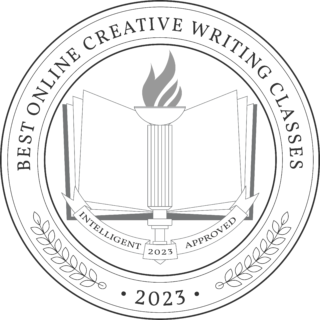

The 10 Best Online Creative Writing Classes of 2023
Written by Mary Van Keuren
Updated: April 27, 2023
Find your online creative-design program in minutes!
Most schools have rolling admissions and financial help so you can start your degree in a few weeks!
The stereotype of the writer starving in their garret while waiting for inspiration to strike is far from the truth for today’s authors. Writers work in many fields, and the best of them get where they are through education and practice. A good writing course will feature a knowledgeable instructor, along with the opportunity to practice the skills they are teaching. To help you determine the best one for your own needs, we’ve sifted through the top options and reviewed the 10 best online writing courses below.
- Coursera — Creative Writing Specialization by Wesleyan University — Top Pick
- Udemy — Secret Sauce of Great Writing — Most Affordable
- MasterClass — Shonda Rhimes Teaches Writing for Television — Best for Multimedia Writing
- The Novelry — Writing for Children — Best for Children’s Literature
- Writer’s Digest University — Creative Writing 101 — Best for Beginners
- Bookfox — Two Weeks to Your Best Children’s Book — Best Editorial Support
- CreativeLive — Writing Your Story — Best for Memoir Writing
- Grammar Lion — A Grammar Refresher for All Writers & Editors — Best for Grammar Review
- LitReactor — Writing the Weird — Best Online Community
- Gotham Writers Workshop — Fiction Writing Level 1 — Best Supporting Materials
Our Ranking Criteria
The best online writing courses offer you the chance to take your natural writing skills and shape them into a form that will open the doors in your chosen field. Whether you want to pen tv sitcom scripts or write the next great American novel, the best online writing course for you will take you further than you would be able to go on your own, helping you develop professional-level skills that will allow you to obtain the job of your choice. We based our decisions for the best courses on the following criteria.
Basic Ranking Criteria
There’s no one factor that makes a writing course the best. Instead we looked at multiple aspects for each of 74 online classes and factored them all into our final ranking. In our first pass, we looked at basic ranking criteria:
Time to complete. Although it’s important to have the time you need to thoroughly understand what you’re learning, no one wants to spend more time in class than is necessary. Some of our chosen classes are self-paced, others take less than an hour to one year.
Prerequisites required. None of our finalists has any prerequisites, which means that anyone with a basic understanding of the English language can participate and learn. If you do have previous writing experience, all the better — but it’s not necessary.
Flexible schedule. All but two of our choices feature a flexible schedule. Your life is busy, and for most people it is difficult to have to sign into the course at a specific time. Eight of our chosen courses allow you to take the classes and do the work as you are able, at a time that’s convenient for you.
Certificate of completion. A certificate of completion is not standard for writing courses. However, if one is available, it is often a plus to add the certificate to your resume and LinkedIn profile.
Advanced Ranking Criteria
Once we reviewed results for the basic ranking criteria, we looked at more advanced features which are specific to the topics of the courses. Since many of our finalists have different focuses (such as children’s literature or creative writing), we were more concerned that they each covered their topic completely, rather than covering the same things as the other courses.
- The course thoroughly covers the material needed for an understanding of the topic.
- Instructors have solid credentials in the field they are teaching.
- The course includes materials that are appropriate to someone without skills or training in that area.
- The course includes opportunities for students to practice their writing skills.
- Instructors are personable and engaging.
- Alumni of the course are equipped to write at a beginning professional level.
- Graduates of the course have landed good jobs in their field.
- The course does not require software beyond a basic writing program such as Microsoft Word.
- Goals for the course are clear from the beginning.
10 Best Online Writing Courses Courses or Bootcamps
Coursera creative writing specialization by wesleyan university.
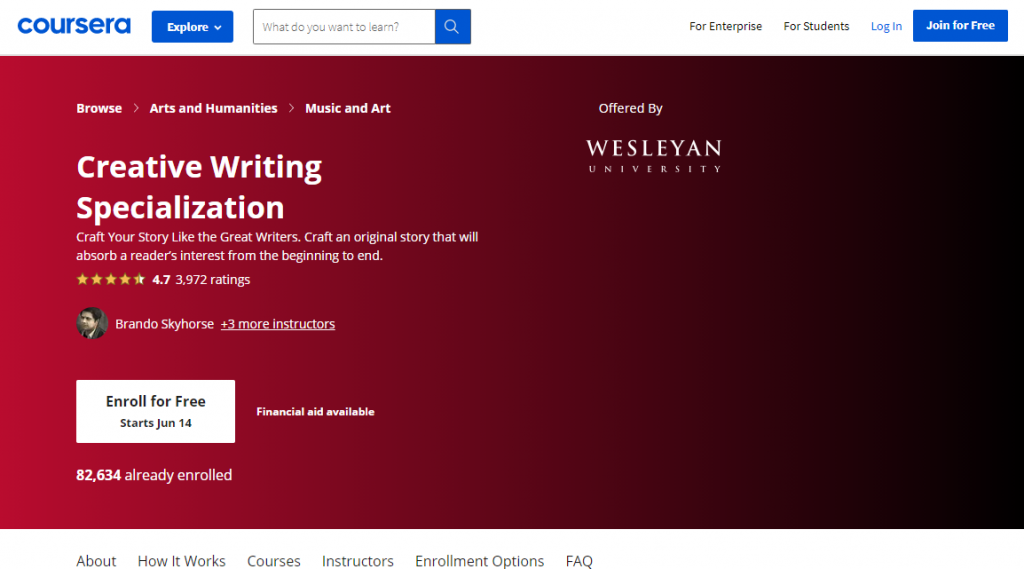
Intelligent Award: Top Pick
Coursera’s business model is somewhat different from many online education companies. It partners with established colleges and universities to offer classes at the higher-ed level. You don’t earn college credit for many courses, but can gain valuable certificates by completing specializations. The Creative Writing specialization consists of five courses that focus on three genres: short story, narrative essay, and memoir. Within those genres, you’ll learn about crafting characters and settings, writing descriptions, and developing your style, followed by a capstone class that will result in a completed story, essay or memoir. Throughout the specialization, you’ll have access to peer readers who can critique your work and suggest improvements. The course is taught by faculty at Wesleyan University who are published authors and trained in the creative writing process.
- Price: $49/month
- Time to complete: 3-6 months
- Prerequisites required: None
- Flexible schedule: Yes
- Includes verified certificate of completion: Yes
Who should take this course? This course is best for writers wishing to jumpstart or fire up their creative projects with college-level coursework.
| Distinguished university-level faculty | No instructor feedback |
| 7-day free trial when signing up | |
| Financial aid is available |
Udemy Secret Sauce of Great Writing
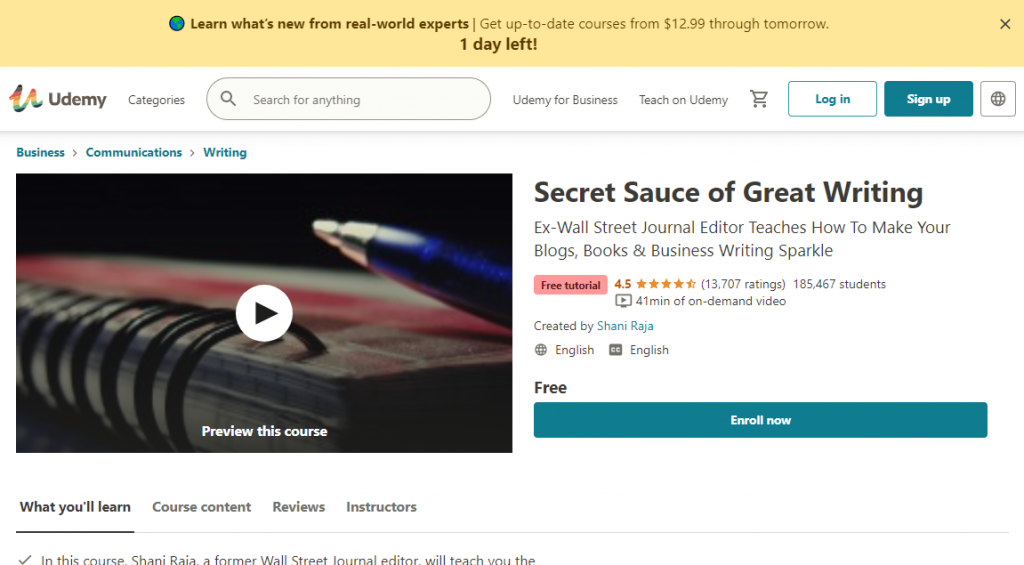
Intelligent Award: Most Affordable
One of the better-known names in the online education industry, Udemy offers both paid and free courses, and, as of April 2021, had more than 40 million students. As you might imagine, an undertaking that vast will have a broad range of quality among its products. One of the company’s many courses on writing, The Secret Sauce of Great Writing stands out. Taught by former Wall Street Journal editor Shani Raja, the class focuses on what Raja believes are the four ingredients of good writing: simplicity, clarity, elegance, and evocativeness. Understanding and using these four ingredients, Raja says, will take your writing from the mundane to the inspiring. And at this price — it’s free! — and with a minimal time commitment (the course runs less than an hour), it is a great way to give your writing a boost and possibly learn some techniques that can enhance your output, whether you’re writing press releases or your autobiography.
- Price: Free
- Time to complete: 41 minutes
- Includes verified certificate of completion: No
Who should take this course? Anyone looking for a short, inspirational course at no cost.
| Little time commitment needed | No interaction with instructor |
| Course available at no cost | |
| Includes exercises |
MasterClass Shonda Rhimes Teaches Writing for Television
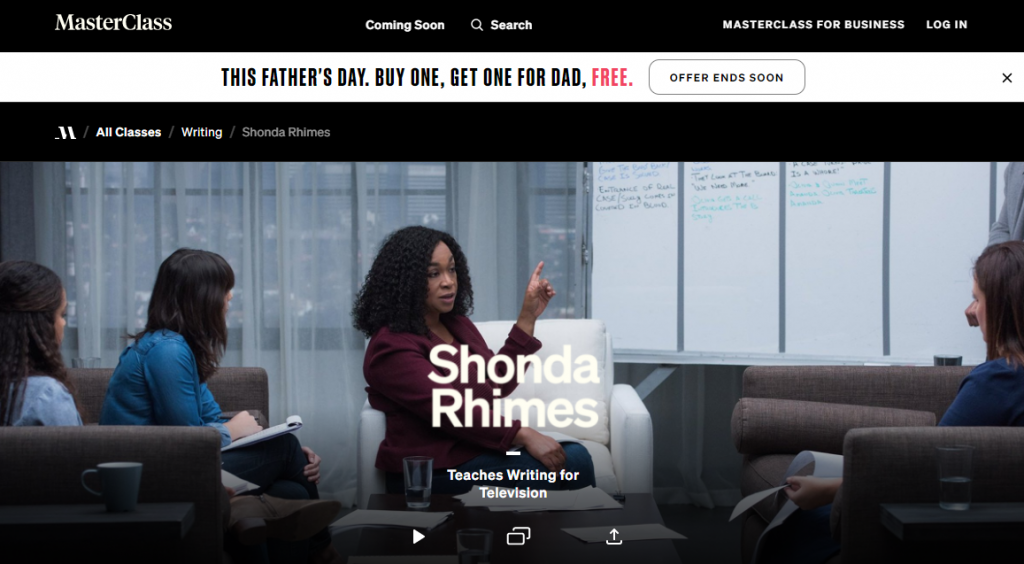
Intelligent Award: Best for Multimedia Writing
Our top pick from MasterClass is Shonda Rhimes MasterClass on writing for television, although there are a number of excellent options for writers, including courses taught by Neil Gaiman, David Sedaris, and Joyce Carol Oates. Rhimes packs a lot into her 30 lessons, including how to create a compelling character, script structure, and writing authentic dialogue. But she also takes it beyond writing instruction, discussing editing, breaking into the industry, and showrunning, among other TV-centric topics. Your annual membership to MasterClass also gives you access to a pdf workbook and the opportunity to download the classes and watch them offline. Rhimes is one of the biggest names in television today and an engaging speaker who seems to relish letting learners in on all the secrets that got her to where she is today.
- Price: $180 annual membership (access to 100+ classes)
- Time to complete: Self-paced
Who should take this course? Best for those with some script-writing experience, or anyone who wants to try their luck with the notoriously-difficult-to-break-into world of TV writing.
| 30-day guarantee | Classes are, on average, only 10 minutes long |
| Instructors at the top of their field | |
| Subscription includes 100+ courses |
The Novelry Writing for Children
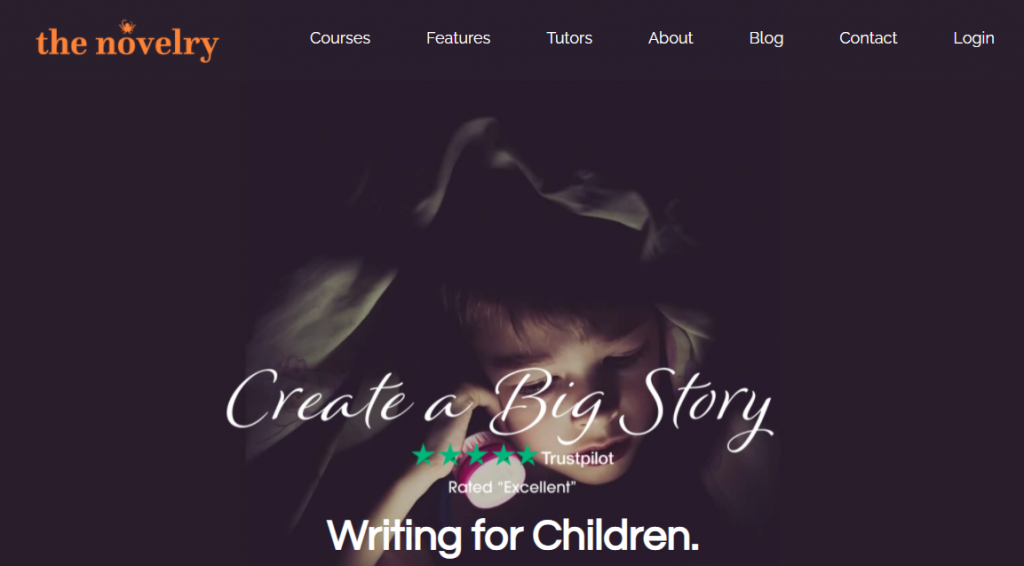
Intelligent Award: Best for Children’s Literature
The Novelry offers several programs for children’s writers, ranging from the Classic Course Box Set, which allows you to work through 45 lessons at your own speed for $365, up to The Book in a Year Plan, which guides you from planning, creating, and writing a children’s novel to publishing within a year (costs $1,999). The latter includes nine one-on-one sessions with a children’s fiction tutor to help you shape your creation — a valuable benefit for budding writers. An interactive platform allows you to ask questions or add comments online. Classes are 15-20 minutes in length, and the company recommends that you allow one hour a day for your writing. The platform keeps track of your progress and offers feedback as you go.
- Price: $365 to $1,999
- Time to complete. Self-paced; one year accessibility
- Prerequisites required . None
- Flexible schedule : Yes
Who should take this course? If you already have a great plan for a novel, the Book in a Year plan is ideal. If you’re still searching for an idea on which you can build a novel, try the Classic Course.
| 45 lessons | Best for those who already have a book idea |
| Created by a Booker-listed author | |
| One-on-one mentoring available |
Writer’s Digest University Creative Writing 101
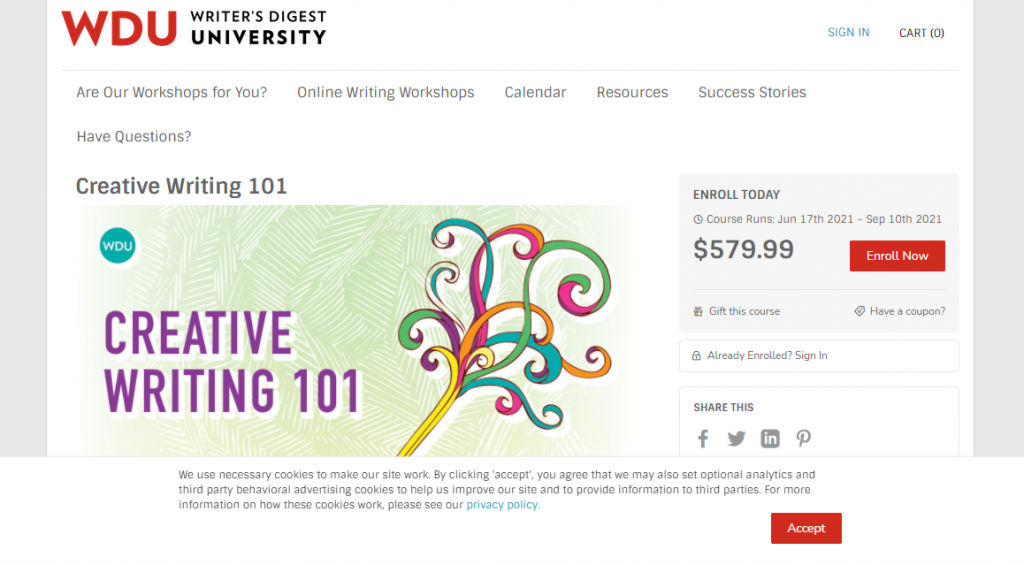
Intelligent Award: Best for Beginners
If you are at the very start of your writing career, you should consider checking out Writer’s Digest University. A venerable name in the writing world, Writer’s Digest has been publishing a magazine for writers since 1920, and it has the professional chops to offer solid, comprehensive courses to both beginners and experienced writers. Creative Writing 101 is geared toward those who have an idea and the urge to write, but are not sure where to begin. The classes lead you in shaping your protagonist and antagonist and fleshing out the plot of the story while addressing common writerly concerns such as determining point of view and how to motivate yourself to write. The 12 sessions are available for $579.99, which is a bit on the steep side for what you receive, but the quality of the courses is generally excellent.
- Price: $579.99
- Time to complete: 12 weeks
Who should take this course? Those who are at the beginning of their writing career without a strong sense of direction. It’s also good for established writers who would like a refresher on topics such as imagery and dialogue.
| Instructor feedback on written assignments | Only 12 sessions |
| Award-winning instructor | Cost is at the high end for a single course |
| Free writing resources available |
Bookfox Two Weeks to Your Best Children’s Book
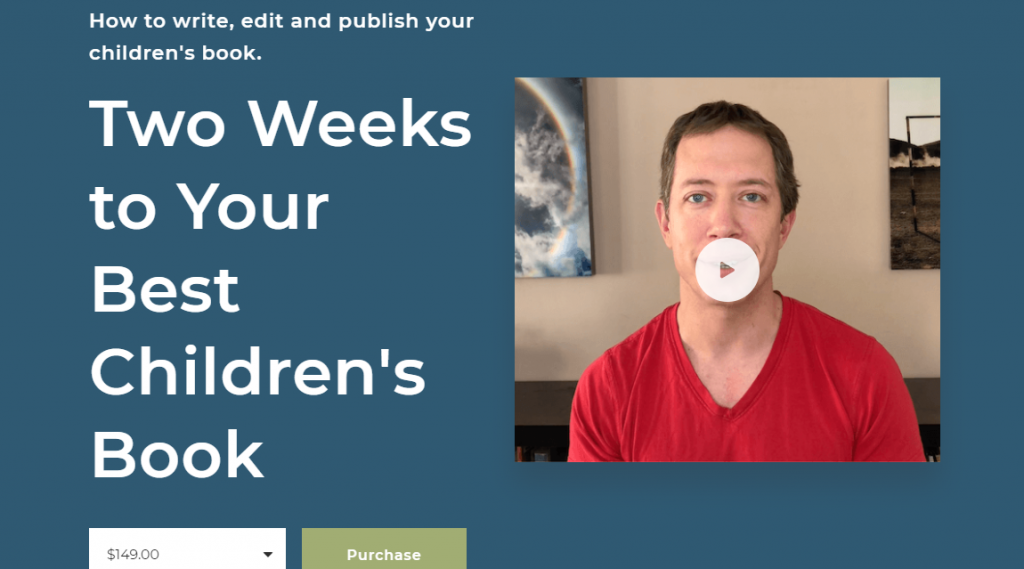
Intelligent Award: Best Editorial Support
Bookfox is the brainchild of John Matthew Fox, a former college professor, editor, and writer, who well understands the ins and outs of the publishing world. His courses, which include Two Weeks to Your Best Children’s Book, are packed with information. They delve far beyond the actual writing process, and include how to generate book ideas, the revision process, and, perhaps most importantly, how to successfully publish your book. He also touches on topics including finding an illustrator and agent as well as what you should know if you decide to self-publish. Fox himself teaches each class. The self-paced children’s book class has 14 lessons, which take anywhere from two weeks up to one year. As a one-man operation, Bookfox doesn’t have the highly-polished look and feel of companies like MasterClass, but Fox’s knowledge base more than makes up for his website’s lack of bells and whistles.
- Price: $149
- Time to complete: Up to one year
Who should take this course? Anyone who wants comprehensive information on the editorial and publishing process.
| Instructor access for questions | Video editing is clumsy |
| Downloadable resources | Limited course options |
| Money-back guarantee |
CreativeLive Writing Your Story

Intelligent Award: Best for Memoir Writing
CreativeLive’s Memoir course, called “Writing Your Story,” is taught by celebrated novelist and memorist Joyce Maynard, who first came to public recognition following her account of her affair with J.D. Salinger, At Home in the World . She’s written several other books of an autobiographical nature along with 11 novels. Her teaching style is engaging and idiosyncratic, and involves numerous stories from her own life. If that piques your curiosity, you’ll find her course engaging and informative, with 26 lessons that range from 5-30 minutes long and discuss how to determine what to write, how to write it, and how to handle criticism and rejection. If you enjoy Maynard’s style of teaching, note that there are several other courses taught by her, including How to Write a Full-Length Memoir and How to Write a Personal Essay.
- Price: $11/month for pass that includes 1500+ classes; $89 if you purchase just this class
- Time to complete: Five hours, 19 minutes spread over 26 lessons
Who should take this course? A great option for anyone who wants to tell their own story.
| Lifetime access | Idiosyncratic teaching style |
| Fast track option available | Few supplementary materials |
| Instructor is a gifted writer |
Grammar Lion A Grammar Refresher for All Writers & Editors
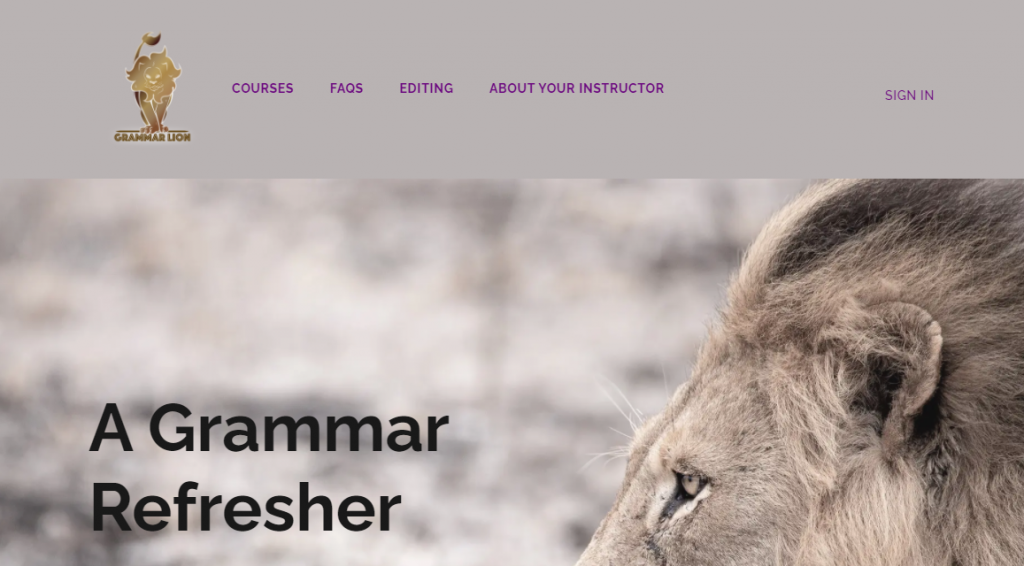
Intelligent Award: Best for Grammar Review
Having a great story to tell is important, but unless you have the basic building blocks of writing, you won’t be able to tell it. This means paying attention to grammar, and it’s what the Grammar Lion Grammar Refresher course offers. Appropriate both for those who need to learn about grammar as well as accomplished writers looking for a review of basic material, the course starts out by identifying the parts of speech, reviews sentence structure, delves into verb forms, and discusses shifts in person, tense, and structure. One whole lesson is given to matters of clarity and logic, and course extras include helpful resources and a favorite books list. The instructor is Ellen Feld, an author, editor, and educator who has taught more than 44,000 students in her online grammar refresher courses. You can connect to Feld via a discussion forum or by private email. She also offers one-on-one editing services for an additional fee.
Who should take this course? Beginners who are learning grammar for the first time and experienced writers who need a refresh in the building blocks of language.
| Easy to engage with instructor | Only 12 weeks of access |
| Discussion forum allows peer review | |
| ESL-friendly |
LitReactor Writing the Weird
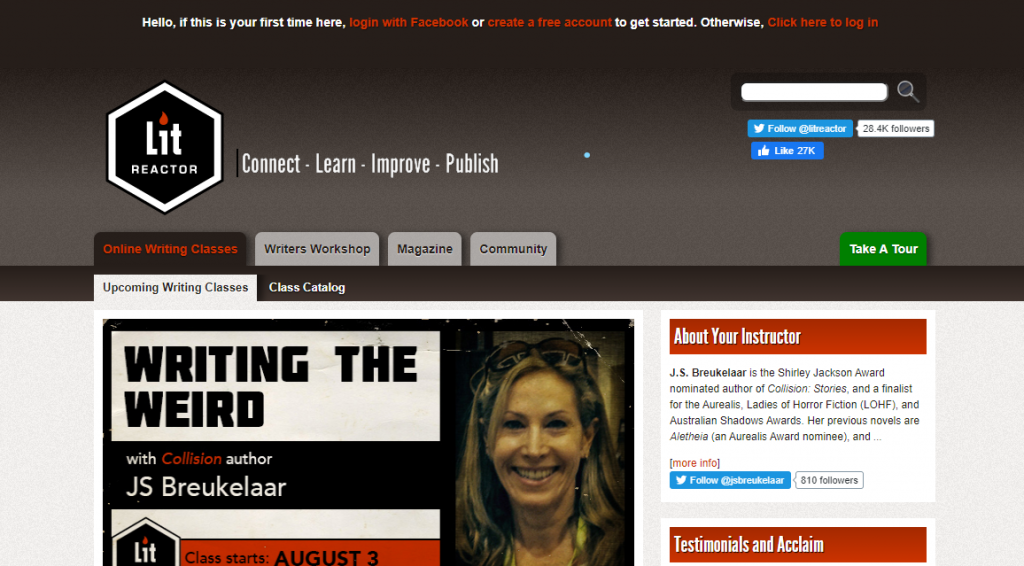
Intelligent Award: Best Online Community
LitReactor’s courses are hip and decidedly off-center. Take, for example, the course Writing the Weird, taught by J.S. Breukelaar, a finalist for the Ladies of Horror Fiction award and author of Collision . Enrollment is limited to 16 students, who take a deep dive into surreal, fantastic, and otherwise bizarre literature to find and write the human elements that make a story stand out. The four week course is divided into four topics: humanity, structure, setting, and resolution. You’ll explore the work of writers from Kelly Link to Matt Bell, and discover how conventional narrative can be a starting point for delving into innovative and speculative fiction. Each week you’ll be given writing assignments that will be critiqued by Breukelaar and your classmates, and in the fourth and last week, you’ll develop a story from start to finish based on what you’ve learned. Depending on your job title, this class may be the least likely to get you a raise. But it just may be the most fun of all our finalists.
- Price: $350
- Time to complete: 4 weeks
Who should take this course? Anyone with a taste for the off-beat and a willingness to stretch themselves and think outside of the box.
| Instructor feedback available | Lack of practical info on publishing |
| Includes judgement-free peer discussions | |
| Active online community |
Gotham Writers Workshop Fiction Writing Level 1
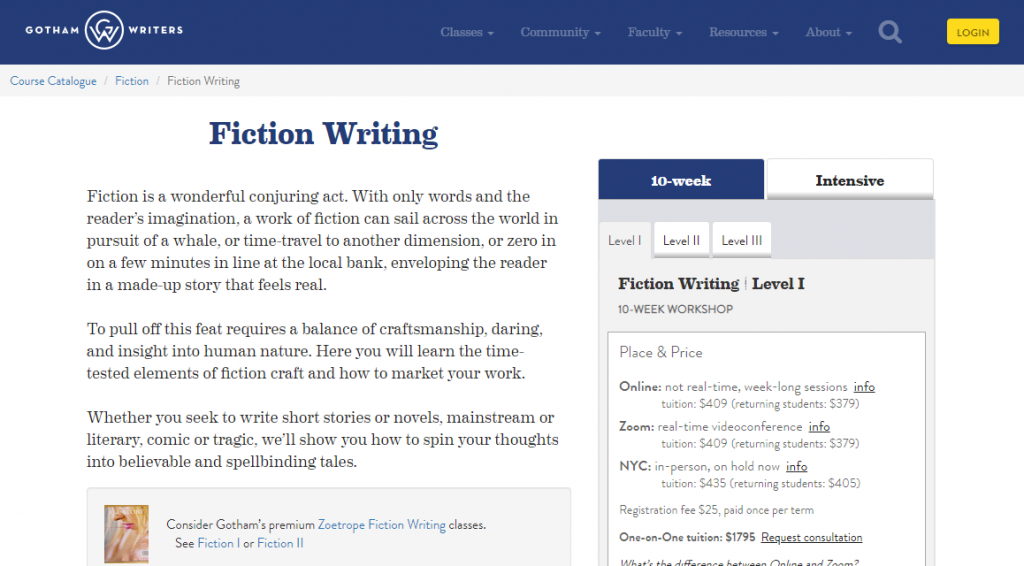
Intelligent Award: Best Supporting Materials
Gotham Writers Workshop has made a name for itself in the NYC region with in-person and Zoom classes, but it also offers well-regarded online classes. Level I classes, such as Fiction Writing I, max out with 16 students per class, so you are guaranteed personal attention from the instructor. Level II and III classes (which include the continuation of the Fiction Writing series), have a maximum of 14 students. You can access each class and do the accompanying exercises anytime during the week for the 10 week workshops. The online interface makes it easy to submit work and read critiques from instructors and fellow students. Lessons are text-based rather than video, and there is a wealth of accompanying materials, such as reading lists and podcasts, to help you extend your learning experience.
- Price: Registration fee: $25; Online: $409; Returning students: $379; One-on-one: $1,745
- Time to complete: 10 weeks
- Flexible schedule: Modified flex time, with work needing to be completed within a week
Who should take this course? Anyone who prefers text-based lessons; those who want to interact personally with their instructor and peers.
| Good interaction with instructor, other students | Class doesn’t feature videos |
| Class size is small | |
| Excellent computer interface. |
Online Course Comparison Chart
| — Top Pick | $49 per month | ✓ No prerequisites required ✓ Flexible schedule ✓ Includes verified certificate of completion |
| — Most Affordable | Free | ✓ No prerequisites required ✓ Flexible schedule X Includes verified certificate of completion |
| — Best for Multimedia Writing | $180 annual membership | ✓ No prerequisites required ✓ Flexible schedule X Includes verified certificate of completion |
| — Best for Children’s Literature | Classic Course Box Set: $365 Classic Course Daily: $185 Novel Kickstarter: $1,350 Book in a Year Plan: $1,999 | ✓ No prerequisites required ✓ Flexible schedule ✓ Includes verified certificate of completion |
| — Best for Beginners | $579.99 | ✓ No prerequisites required ✓ Flexible schedule X Includes verified certificate of completion |
| — Best Editorial Support | $149 | ✓ No prerequisites required ✓ Flexible schedule ✓ Includes verified certificate of completion |
| — Best for Memoir Writing | Get the pass: Starting at $11 per month Buy class: $89 | ✓ No prerequisites required ✓ Flexible schedule X Includes verified certificate of completion |
| — Best for Grammar Review | $87 | ✓ No prerequisites required ✓ Flexible schedule ✓ Includes verified certificate of completion |
| — Best Online Community | $350 | ✓ No prerequisites required ✓ Flexible schedule X Includes verified certificate of completion |
| — Best Supporting Materials | Registration fee: $25 Online: $409 (returning students: $379) One-on-One: $1,745 | ✓ No prerequisites required ✓ Flexible schedule X Includes verified certificate of completion |
Tips for Succeeding in an Online Writing Course
1. consider the cost, how much do online writing classes cost.
Online writing courses are offered at a broad range of price points, our cheapest option is free, and the highest is nearly $2K. Generally, the more personal one-on-one time you have with an editor or your instructor, the more you’ll pay. LitReactor, for example, has a vibrant online community and regular feedback from your instructor, and costs $350 for the roughly four-week class.
Many of our choices are paid for in one lump sum when you sign up. A few, however, follow Coursera’s model of charging by the month or year. Also, keep in mind that some of our choices, such as MasterClass, give you access to all courses for the membership fee. So, if you have the time and interest, your $180 annual fee at MasterClass could net you literally dozens of courses in a range of topics.
Will my employer pay for me to take the course?
If you work in the communications industry, or in any industry that values good, clear writing skills, you may be able to have all or part of your writing course fees paid for by your employer, especially if you can show them how the course will benefit them. It’s worth asking your boss or your HR supervisor if they will help out with the cost.
2. Get your tech squared away
You shouldn’t need any special software or hardware to take an online writing course. You will need a good internet connection and a computer that is loaded with the most recent version of your chosen browser and system files. Most courses are formatted to work on both desktop computers and other devices, such as your tablet or smartphone. One handy app if you use Google Chrome is the company’s Video Speed Controller , which allows you to speed up or slow down HTML5 video, as needed.
3. Use the right study resources
One resource that many writers swear by is a good style guide. There are several of these, and you can generally find out which style guide your company uses with a quick question to the marketing or communications department. Here are the most common:
- Associated Press Stylebook — now in its 55th edition, this is the granddaddy of them all. Used by journalists, it is also the favored choice for much web writing as well as some academia.
- The Chicago Manual of Style — a wealth of information, the 17th edition features chapters on grammar and usage, a glossary of problematic words, and extensive information on citing sources.
- Publication Manual of the American Psychological Association — in its 7th edition, this style guide is used extensively by researchers and those in science and health care.
Career Outlook for Creative Writing
The skills you learn in an online creative writing class can be applied to multiple careers and offer plenty of opportunities to share your ideas and perspectives. Few people are full-time authors. But the vast majority of professions, from legal work to health care, require those who can write clearly and concisely. According to the government’s Occupational Outlook Handbook , a full-time writer earns an average of $67,120 a year — but you can earn significantly more, depending on your job skills and professional area. Below are additional jobs related to creative writing:
Authors tell stories in a written medium. They may generate their own work based on their personal interests or areas of expertise, or they may work on commission for a third party. The writing process includes brainstorming, researching, outlining, drafting, and revising. Because authors typically work on contract, their salaries vary widely. As of May 2021, the U.S. Bureau of Labor Statistics (BLS) reports that the median annual salary for writers and authors is $69,510 . Authors receive payment through a combination of advances, royalties , and net receipts or via a flat fee .
Screenwriter/Playwright
Screenwriters and playwrights use their creative writing talents to tell stories through performance-based mediums like TV, film, and live theater. These roles are often collaborative, with writers working as part of a team that includes directors, producers, actors, and designers. Screenwriters and playwrights must generate ideas, conduct research, outline, write, and rewrite. These jobs are often contractual, with salaries varying greatly. According to Salary.com, screenwriters earn a median annual salary of $67,501 .
Public relations specialist
Public relations specialists and publicists rely on strong written communication skills to produce press releases, articles, speeches, and more. These individuals use the narrative-crafting skills they learn in creative writing classes to tell stories for their clients, who can be organizations, brands, or products. BLS projects an 8% increase in public relations specialist jobs through 2031 and reports that the median annual wage is $62,800 .
Marketing copywriter
Marketing copywriters use their creative writing skills to describe and promote brands, products, services, and more. They write for a variety of print and digital platforms, including catalogs, commercials, social media, and more. Virtually every industry employs copywriters , including finance, retail, business consulting, and IT, making this an ideal career path for individuals with expertise in a field other than writing. The annual salary range for copywriters falls between $46,255 and $59,729 , according to Salary.com.
Blogger/Web content writer
Creative writers can use the internet to share and monetize their writing . Bloggers may be self-employed and run their own blog based on their interests or they may write for an outside company as a freelancer or salaried employee. Brainstorming, researching, writing, and editing are all common elements of a blogger’s job. They may also need to create photo or video content and promote the blog. The average salary for bloggers is $47,910 , according to Salary.com.
Educational requirements for careers in creative writing
Whether a job in the creative writing field will require a specific degree or formal training largely depends on the role or the employer. Nobody needs formal training or credentials to write a book, blog, movie script, play, etc. Individuals often teach themselves through the practice of writing. Still, formal training can be helpful if you want to familiarize yourself with storytelling techniques and principles and to learn more about the particular industry you want to join. For certain jobs, such as editor or journalist , a bachelor’s degree can open up more opportunities and increase earning potential.
Frequently Asked Questions About Writing Courses
Are there free online writing courses.
Yes. In fact, one of our ten best choices is Udemy, which offers a broad range of free courses. In general, however, the old adage about how you get what you pay for holds true — the best, most well-designed courses will usually have a cost attached to them.
How long is the average online writing course?
Online writing courses vary from less than an hour to up to a year. Since most offer a flexible schedule, you can do them when you have time available. Keep in mind that in addition to lectures you’ll be watching or reading, you may also have exercises to complete, which take additional time.
Are online writing courses worth it?
They can be. Like many things in life, you will get as much out of it as you put into it. If you are taking a course for personal enrichment, all our chosen courses should benefit you. If you’re looking for professional advancement, a course with a certificate of completion may be a good idea, so you can show the certificate to your boss when done.
What are the best online writing courses?
There are probably hundreds of online writing courses — we looked at nearly 75 for this review. The best online writing courses are the ones we’ve featured above. The best writing course for your needs will depend on what you are looking to get out of it. If you’re hoping to write a best-selling children’s book, for example, the best writing class might not be Shonda Rhimes’ MasterClass. You’d be better off choosing an option like The Novelry’s program or John Matthew Fox’s Bookfox.
Interested in a degree instead?
Learn more about online degrees, their start dates, transferring credits, availability of financial aid, and more by contacting the universities below.
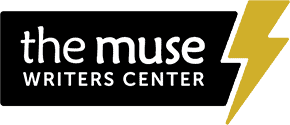
Search for a Class
Upcoming events, science fiction and fantasy writers of hampton roads meeting, the scribes: a club for 18-25 year old writers, shannon curtin book launch, write now at slover library.
View Events Calendar →
Support the Muse
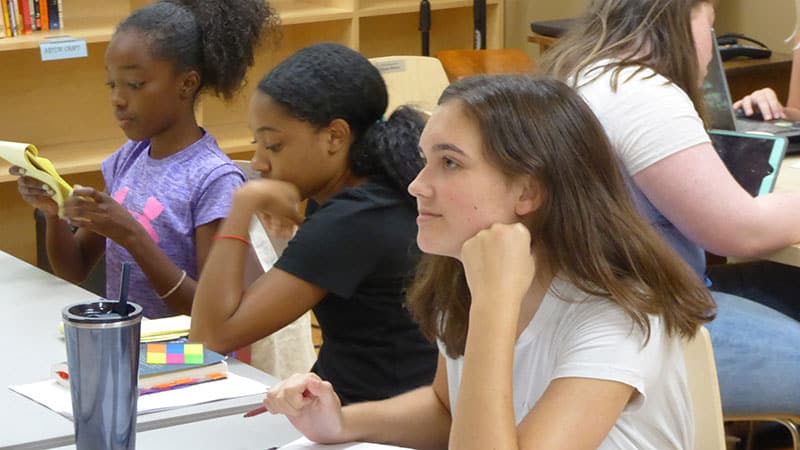
The Muse Writers Center is a 501(c)3 nonprofit organization and your tax-deductible donation will help us continue to grow and serve the Hampton Roads literary community, including offering scholarships and tuition help as well as through our outreach programs to youth, seniors, and the military community.
The Muse Writers Center celebrates creative writing and the literary arts throughout Hampton Roads, Virginia, the nation, and beyond. We offer in-person, online, and hybrid creative writing classes, workshops, and seminars in every genre (fiction, poetry, nonfiction, screenwriting, songwriting, and comic book writing, as well as craft and professional development) for beginning and experienced writers--whether they be adults, children, or teens. In our Norfolk literary center, we house a library and space for writers to work and meet. We host diverse and culturally relevant literary events, readings, open mics, and special events at The Muse, around the region, and online for every audience. We never turn anyone away from a class because of their financial situation and have provided tuition help and scholarships to more than 4,000 people. Our engaging and creative outreach to youth and schools, senior living communities, and the military community is always expanding. More about us →
Our Students Say
I think the Muse is brilliant and that Norfolk/Hampton Roads is unbelievably fortunate to have this resource. And that I am beyond fortunate to have the opportunity to be part of it, for which I am incredibly grateful for the Muse’s generosity in allowing me to participate in spite of my current state of very limited income.
Coming around the Muse is the most ‘at home’ I’ve felt in a long time. So glad you all are around.
The Muse keeps me afloat, and is the best community I’ve ever found. Thank you.
The Muse is the place where I can open my mind and let my thoughts out, since I can’t do that anywhere else, like in school. It’s more of a creative place where there are other people like me, and I can share my opinions and views and get feedback as well. I have definitely improved my poetry, and also I have started getting into screenwriting, and the classes give me short story ideas. I want a career as a writer; I aspire to be a professional author and poet.
Thanks for creating an outlet and community for something I’ve always wanted to do. I especially appreciate the rigor that The Muse provides. I’m always impressed by the caliber of the instructors and my fellow students. Keep up the good work!
The Muse is an amazing place and the fact that it is available even when I can’t afford to pay speaks to the true support of writing and all creativity. It is a quality place, and I am learning so much.
Welcome to The Muse!
READY TO WRITE?
HAVE THE MUSE SEND YOU CLASSES, TIPS, & TRICKS STRAIGHT TO YOUR MAILBOX :
We don’t spam! Read our privacy policy for more info.
You’ve been successfully subscribed to our newsletter!
General registration for summer quarter classes is OPEN! Find your perfect writing class here ☀️
For all writers.
If you love to read or write, there’s a place for you at hugo house..

Hugo House isn’t just a place. It’s a community.
Hugo House is a nonprofit literary arts organization that aims to make writing accessible. Everyone has a story to tell. Whether you’re a new writer wanting to learn, an experienced author seeking a supportive environment to share your work, or a reader looking for new books to love—at Hugo House, you’ll find ways to explore your creativity, whatever your interest or budget.

Registration for Summer 2024 creative writing classes opens on June 4th!
Subscribe to our digital newsletter to stay up-to-date with house happenings and other community programs.
View our Digital Class Catalog
Learn with us.
Whether you’re struggling to write your first poem or have a few novels under your belt, Hugo House offers classes, workshops, and other programs to help you achieve your writing goals. Our classes are taught by published writers who are also stellar teachers. Our students come from a variety of backgrounds and life experiences. What they all have in common: a love of words.
Imagined Realities: Speculative Fiction Survey
Instructor: Evan Ramzipoor. Speculative fiction is play: breaking narrative forms to create something new. We'll study how the masters do it, then write our own. Leave with several starts and a new sense of ease toward your writing as a whole.
Upcoming Events
Open hours at hugo house, clarion west presents brenda peynado, write with hugo house with jeanine walker, write with hugo house with alma garcía, write with hugo house with miz floes.

News & Insights
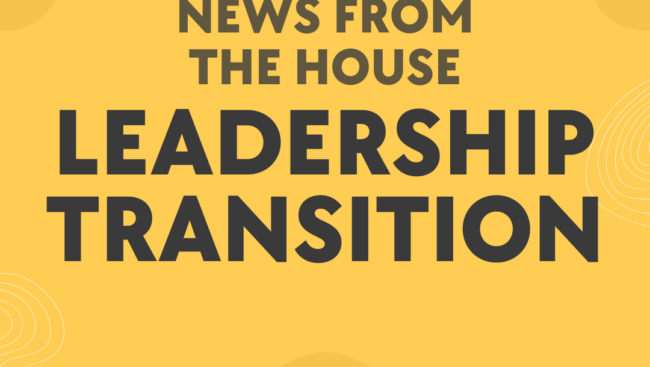
Leadership Transition at Hugo House
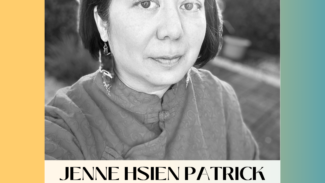
Jenne Hsien Patrick, 2023-24 Hugo Fellow Mid-Year Check In
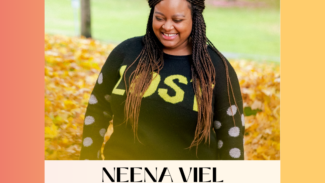
Neena Viel, 2023-24 Hugo Fellow Mid-Year Check In
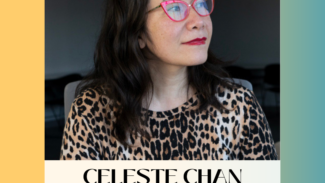
Celeste Chan, 2023-24 Hugo Fellow Mid-Year Check In
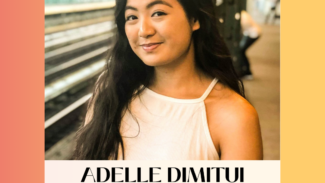
Adelle Dimitui, 2023-24 Hugo Fellow Mid-Year Check In
Featured free resource, open mic events.
Works in Progress is Hugo House’s semi-monthly writing open mic series inclusive of diverse formats. Read your work—poetry, fiction, essays, memoirs, plays, music, comedy, and more—and connect with your literary community.
Newsletter signup
House news and writerly updates
Physical Location
Mailing location.
© 2022 Hugo House
- Privacy Policy
- Terms of Use

Top 5 Best Creative Writing Courses
Want to jump straight to the answer? The best creative writing course for most people is Masterclass : Margaret Atwood Teaches Creative Writing or Coursera : Creative Writing Specialization.
Creative writing courses help develop your writing skills, build conscious writing habits, and teach you how to build a professional portfolio for your writing career. Most creative writing courses offer educational and practical assignments that help you advance your creative writing abilities.
Whether you’re a complete beginner or just want to sharpen your creative writing tools, the courses below have you covered.
The Top 5 Best Creative Writing Courses
- Masterclass : Margaret Atwood Teaches Creative Writing – Best for writing development
- Coursera : Creative Writing Specialization – Best for experiential learning
- Udemy : Complete Creative Writing Course – Best for portfolio creation
- Gotham Writers : Creative Writing 101 – Best for building a writing habit
- Reedsy Learning : Understanding Point of View – Best for beginners
Continue reading for our in-depth reviews on the five best creative writing courses to help you become a better writer today.
Masterclass: Margaret Atwood Teaches Creative Writing – Best for Writing Development
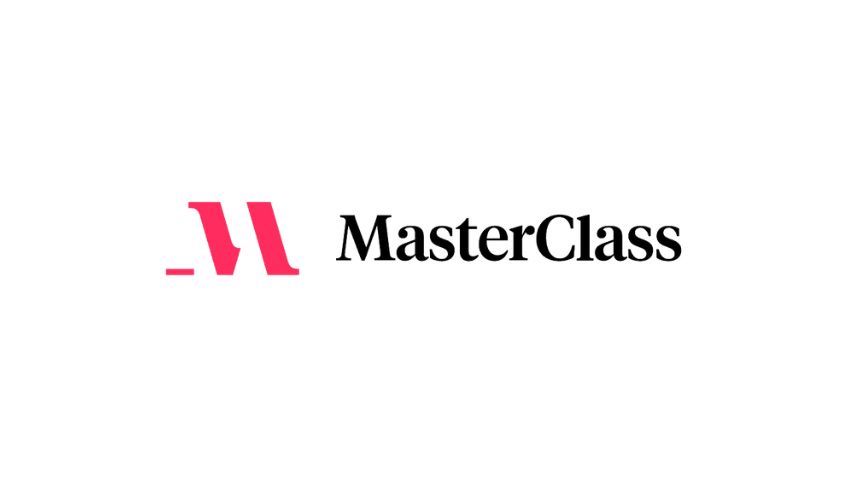
If you’re an experienced writer looking to develop your writing abilities, the Masterclass course Margaret Atwood Teaches Creative Writing is an excellent option for you.
This course compiles advanced material that Atwood simplifies with 23 slow-paced video lessons that span across about four hours.
Author of The Handmaid’s Tale and instructor of this creative writing course, Atwood takes you on a journey of the creative writing process from getting started to getting published. Her first-ever online class will teach you to develop your writing with advanced material and personal advice.
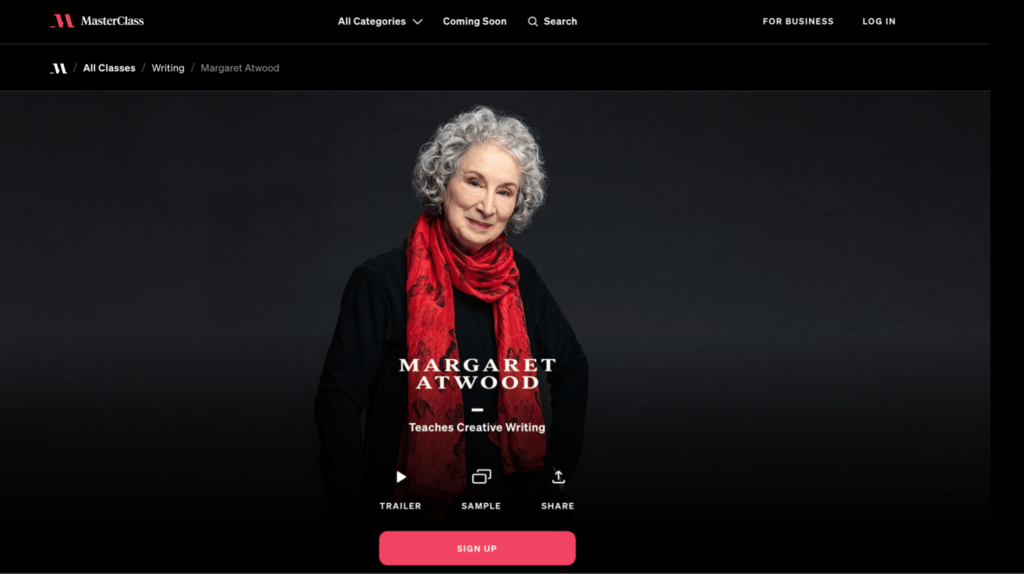
Whether you already have a first draft or a half-written book, this in-depth course teaches all about core writing elements. Atwood discusses how to write a compelling story, create structure, develop nuanced characters, keep your readers interested, and how to stay motivated while writing—helping you turn your work into a masterpiece.
The best part about this specific creative writing course is how participatory it is. You get access to a class workbook that includes additional writing assignments you can complete after each lesson, as well as helpful resources for writers.
The course also comes with a community hub for all students to interact with each other. The community page gives you a place to discuss lessons, share your work, get feedback, and network—creating a sense of classroom-like community.
The structure of the Masterclass course is easy to navigate, with all 23 lessons being split into three to five sections and are around 10 minutes long each.
Lessons one through 16 are about the general elements of writing, like story and plot, structure, characters, and point of view. Lessons 17 through 23 discuss the business side of writing, including getting published and working within different genres.
Masterclass offers one membership fee to receive access to every class on its website. The fee is $10 per month, billed at $120 per year.
A Masterclass membership gives you access to more than 180 classes, audio-only lessons, offline viewing, downloadable instructor guides, and new classes added every month.
Masterclass also offers a 30-day money-back guarantee on all subscriptions.
Coursera: Creative Writing Specialization – Best for Experiential Learning
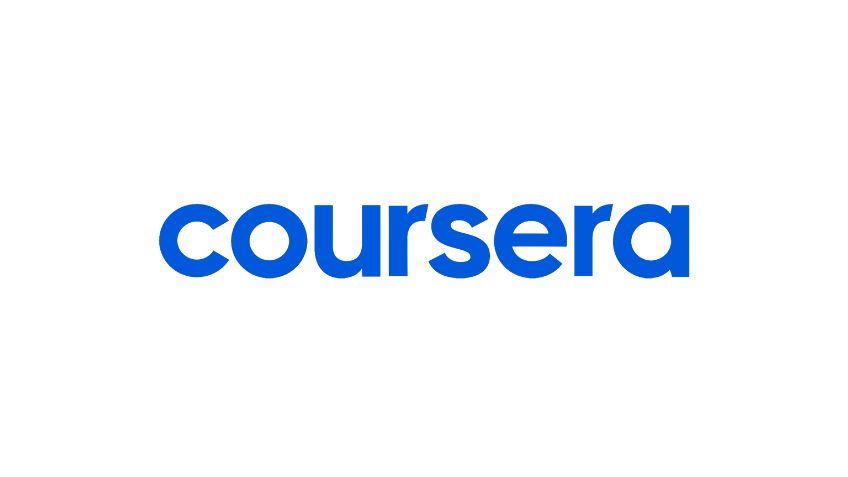
Not every creative writing course offers practical and interactive assessments, but the Creative Writing Specialization courses offered by Wesleyan University for Coursera stands out because of its experiential learning experience. This is a set of five courses within one larger specialization, all leading to a capstone project.
As a creative writing course with extensive hands-on projects, each specialization will teach you how to master a different writing technique that successful writers use in the three major writing genres.
There are more than 113,000 students already enrolled in this set of courses, and for a good reason. The course structure has helped many people understand the short story, narrative essay, and memoir genre.

What makes this course so experiential is during the last lesson, where you have the chance to write and edit your own original story.
Using the elements and techniques you learn throughout the five courses taught by different instructors, you will draft a short story, narrative essay, or memoir. With the help of your peer readers and instructors, you will revise, rewrite, and complete the story in whichever genre you choose.
Each course within the overall Specialization focuses on a different element for each genre. During this course, you will learn the craft of plot (course one), crafting characters (course two), settings and descriptions (course three), and style (course four) before you put these skills to the test and write your story in course five.
Even though this Specialization is more in-depth, it’s still flexible, as you can take each of the first four courses in any order (ending with the course five capstone). It’s also 100% online, so you don’t need to show up to a classroom, and you can access all course material via a desktop or mobile device.
The Creative Writing Specialization currently takes one month to complete at 10 hours a week, which you should keep in mind. However, Coursera lets you set and maintain flexible deadlines, even though you cannot change the course duration to be any shorter than it already is.
Currently, Write-Bros, Scrivener, and Scribophile are sponsors of the Creative Writing Specialization course and are offering discounts for all students who complete their assessments.
Upon completing your first assignment, you receive an 80% discount from Write-Bros, a 30% discount on your first purchase from Scrivener, and a 30% off membership pricing for Scribophile’s online writing community.
You can enroll in the course for free to read and view the course content. However, if you want access to all courses in the Specialization and receive a certificate upon completion, you need to sign up for Coursera Plus. Coursera Plus offers both monthly and annual subscriptions. The cost is $59 per month or $399 per year with a 14-day money-back guarantee.
With each Specialization course, you get access to shareable course certificates, course videos and readings, practice quizzes, graded assignments with feedback, graded quizzes with feedback, and graded programming assignments.
Coursera also offers financial aid and a seven-day free trial of Coursera Plus.
Udemy: Complete Creative Writing – Best for Portfolio Creation
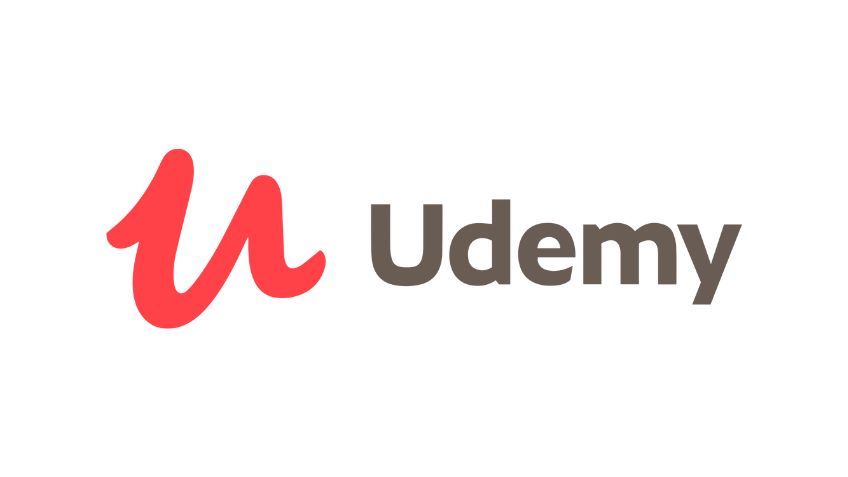
If you want to learn about the four writing genres and create a strong portfolio with your writing samples, the Complete Creative Writing course by Udemy is an excellent option.
Creating an outstanding portfolio can be difficult for many writers, especially beginners, but this course will help you create a digital portfolio in just five concise sections.
Instructed by teacher and author Trace Crawford, this course delves deep into the world of fiction, poetry, drama, and creative nonfiction. In the fifth and final section, you’ll learn how to create a digital portfolio.

Including the introduction, the course has 162 lectures and a running time of about 12 hours. By the end of this course, you will understand the ins and outs of all things creative writing.
Crawford breaks down the course into four subsections: Fiction, Poetry, Drama, and Creative Non-Fiction. You will receive a writing journal prompt for every lesson, 145 downloadable resources, and a certificate of completion. Each subsection offers between 20-50 lectures that range between one and four hours in length in total.
The final course section focuses only on the digital portfolio. Many creative writing courses don’t touch on portfolio creation, even though it’s an essential aspect of a writer’s career. These lectures will leave you feeling ready to pursue a career in writing.
This course is also flexible, as you can complete it at your own pace and receive lifetime access for one price. If you have the time, you can complete this course within a day or two, which is helpful to retain as much information as possible.
The course comes with 37 online quizzes, 145 downloadable resources, and journal prompts. You also receive a daily writing assignment, a lesson covering the course content, and a practical application project.
Crawford aims to further develop and perfect your voice by teaching you about the four genres. You will also learn about writing techniques, writing concepts, how to evaluate the strengths and weaknesses of your writing projects, and of course, you will build a portfolio.
The regular price is $109.99 for the Complete Creative Writing course, and Udemy often has discounts throughout the year. This specific course usually goes on sale each month, so look out for this.
Udemy also offers a 30-day money-back guarantee.
Gotham Writers: Creative Writing 101 – Best for Building a Writing Habit
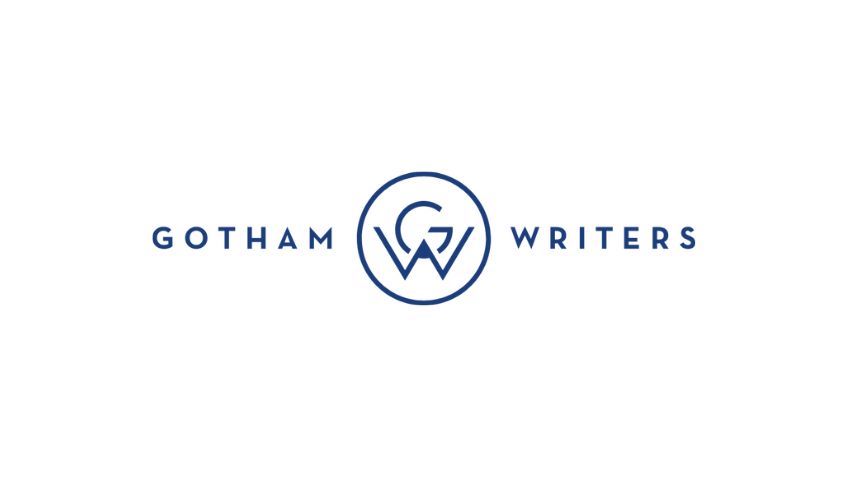
Are you struggling to build a writing habit and don’t know where to start? The Creative Writing 101 six-week course by Gotham Writers is an excellent place to start.
This level one online six-week class focuses on slowly building a writing habit while teaching you about the show and tell of writing, individuality, fiction, nonfiction, and how to get better at the craft.
This course is unique because each class size is limited for students to get enough personal attention from the instructor. There are a maximum of 16 students in each Creative Writing 101 class, which is 100% online.
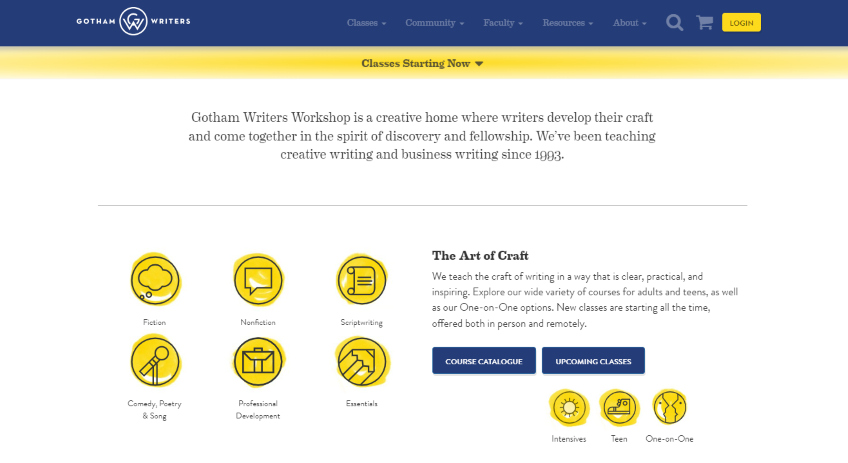
Creative Writing 101 helps you slowly build a writing habit by encouraging you to complete daily observation exercises and free writing. These writing activities help stimulate the brain and create a way to write freely without the burden of writer’s block.
The course also offers weekly writing assignments that the instructor grades and provides feedback for, which will help you feel more confident about your writing abilities as you progress through the course.
Because this course is online, Gotham Writers provides the Lounge feature for all students to meet weekly for a one-hour live chat. The Lounge is open 24/7 for all students to chat and get to know each other, network, and discuss feedback.
You also get access to a weekly planner, class roster, guidelines, and syllabus. The notebook, booth, library, and blackboard are other essential features that store lectures, assignments, resources, and student feedback.
The course layout is the most similar to an online classroom, especially for collaboration purposes, making it easy to navigate and complete tasks. Each class session lasts for a week, and you have the flexibility to complete tasks at any time of day during the week.
Gotham Writers offers this course online, on Zoom, or one-on-one (either in NYC or long distance) for different prices.
- Online: $319
- Zoom: $319
- One-on-One: $1,195
There is also a $25 registration fee that you pay once per term. All course dates are listed on the website and are subject to availability.
Reedsy Learning: Understanding Point of View – Best for Beginners
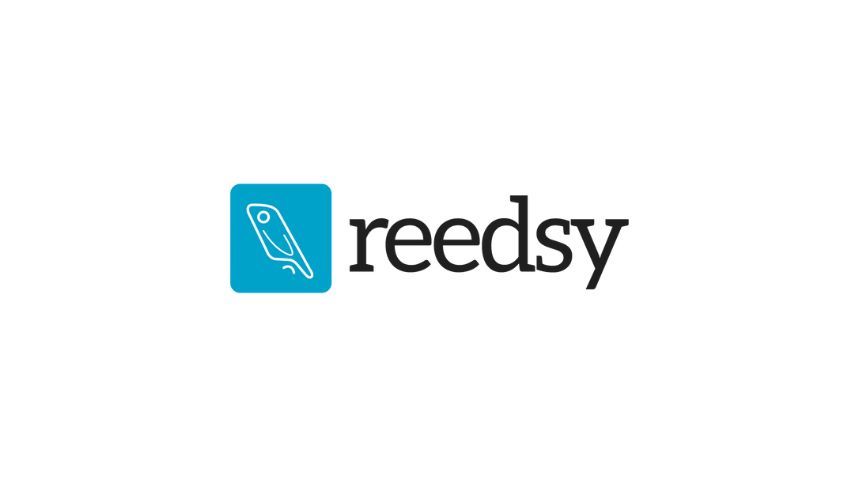
Beginners need to start somewhere, and there’s no better place to start than enrolling in the free Reedsy Learning course, Understanding Point of View.
Taught by TEDx speaker and author Gabriela Pereira, this course focuses on the technical element of point of view, which challenges many writers in the beginning stage. If this sounds like you, you will be delighted to hear that this course is free and gets delivered to your inbox every morning for 10 days.
This is a quick and easy 10-day course. Each lesson is just five minutes, and Pereira takes you on an immersive journey through the challenges of establishing the correct point of view in your creative writing.
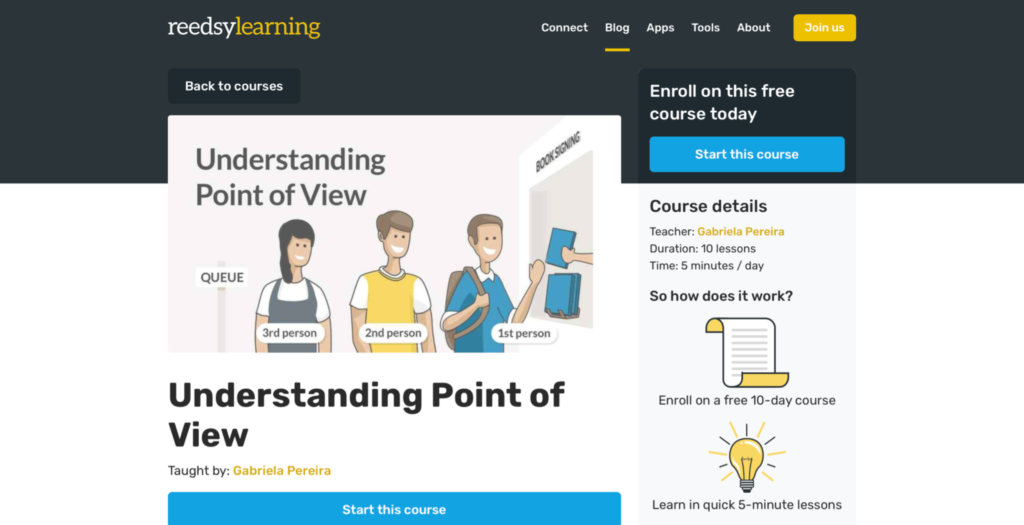
This course will familiarize you with each primary POV, including first, second, and third person. With the help of practical writing exercises, you will complete the course understanding how to master each point of view within your writing.
During this course, you will also learn:
- The differences between third-person limited and third-person omniscient
- The strengths and weaknesses of second person
- How to work with multiple points of view
- Epistolary and Journal forms
To enroll, include your name, email address, and time zone so that Pereira can deliver each lecture to your inbox on time. You can start each morning on the right foot by completing a quick five-minute lesson and go about your day, making it a simple course for the complete beginner to follow and get used to writing each day.
Reedsy Learning offers this and many other free online courses to help you establish your career and transform your writing skills.
How to Find The Best Creative Writing Course For You
There are a few factors that go into finding the best creative writing course for you. Sometimes it can be challenging to choose the right course, especially since there are many different goals you may want to achieve. So we put together this methodology of the three most essential elements to consider before investing in a creative writing course.
Schedule and Flexibility
The first thing to consider before investing in a creative writing course is the flexibility of your schedule. Consider the duration of each writing course, as some can go for days, weeks, or even months.
The Complete Creative Writing Course by Udemy is a flexible option, as it allows you to go at your own pace and offers 12 hours of content you can complete in as little as a day or two.
However, some courses aren’t as flexible with timing, such as the Creative Writing Specialization by Coursera and Wesleyan University—which takes one month to complete.
Make sure you check whether the timing is flexible, or you might need to change your schedule to fit in with your studies.
Payment Method
Each course offers different prices depending on the duration, topic, and how in-depth the content is. Some writing courses have a subscription-based payment method, while others are one-off payments for lifetime access.
It’s crucial to look for lifetime access, as you don’t want to invest in a course that will expire, and you lose all access to the materials. The course Understanding Point of View by Reedsy Learning is a free course perfect for beginners or anyone who isn’t sure where to start.
You can enroll in a free course to learn the ropes of online studying, or you can choose one that offers a one-off payment, as most of the courses on this list. We wouldn’t recommend paying for a subscription unless you are dedicating a few months to learning or are interested in multiple courses from the same company.
Learning Community
A learning hub or community page can help you reinforce the learning materials, network, and build on your overall learning experience. Courses like Margaret Atwood Teaches Creative Writing by Masterclass and Creative Writing 101 by Gotham Writers offer community hubs or lounges for students to interact and connect.
Although not required, a central hub is essential for building a community and connecting with other writers. It can make your learning experience feel more like a classroom, even when it’s online.
You might even complete the course with a few fellow writer friends along with the knowledge you obtained from the writing course.
The Top Creative Writing Courses in Summary
Overall, the Masterclass and Coursera courses are our top two recommendations for the best creative writing courses on the market today.
With workbooks, learning hubs, video content, and downloadable resources, you can learn how to become a successful and confident writer using the courses reviewed in this guide.

Are you looking for the best online creative writing courses? You may have found some promising classes online, but you may also be unsure if the course is actually good. How can you know you’ll benefit from the course without spending your money first?
The good news is, there are creative writing courses out there for everyone, and they’re sure to improve your writing. Even better news, the best online creative writing courses share many of the same qualities.
If you want to learn how to write creatively, or if you simply want to improve your everyday writing, the best online creative writing courses can transform your writing abilities. Let’s explore what you might learn in creative writing classes, and how they help writers of all skill levels.
The Best Online Creative Writing Courses: Contents
What do you do in a creative writing class?
- Reputable Instructor
- Clear Course Description
- Promise of a Great Experience
- Constructive Feedback
- Focus on Craft
- Respect Your Creative Autonomy
- A Writing Community
- Motivate You to Write
- Jumpstart a Writing Habit
- Broaden Your Literary Horizons
- Offer a Healthy Creative Outlet
- Give You Next Steps
How to Make the Most of Online Creative Writing Courses
Every online creative writing class is unique, and different courses emphasize different things. We have classes that are entirely generative, meaning the focus is on writing new poems, essays, stories, or making headway into a novel or memoir project. Other courses might have more of a workshop component, in which you share your work with the class and receive feedback on how to improve your writing.
Some online writing courses also focus on specific skills or types of writing. You might take a class focused entirely on learning the tools for revision, or on learning the elements of fiction writing so you can later employ them in a story or novel.
In short, the best online writing courses typically include the following:
- Lectures and discussions on a topic of creative writing craft.
- Assignments that help you generate new work or revise old work.
- Opportunities to give and receive feedback with your fellow classmates.
- Feedback on your work from the instructor, who themselves is a successfully published author of the type of writing you’re producing.
- A weekly video call. Some courses, including ours, are entirely text-based and asynchronous, but many classes meet at least once a week on Zoom.
In addition to all of this, you will make new friends and connections in the best online creative writing classes. Writing is often a lonely experience for writers, and the bonds you make in creative writing workshops can last a lifetime.
12 Things to Look For In the Best Online Creative Writing Courses
The best online creative writing courses will sharpen your writing skills, help you find your confidence, and introduce you to new communities of writers. How do they do it? Here’s 12 things to look for to make sure you’re spending your money on the right online writing class.
1. The Best Online Creative Writing Courses Have a Reputable Instructor
Your course is only as good as the instructor who teaches it. For online writing classes to teach you the craft, they need to have reputable, trustworthy instructors. A great instructor will also be empathetic, community-oriented, adaptive to your writing needs, and a great writer themselves.
A great instructor will also be empathetic, community-oriented, adaptive to your writing needs, and a great writer themselves.
Do some research on the course instructor: they should have a terminal degree in their field (M.A., M.F.A., Ph.D., etc.), as well as a significant publication history. A reputable instructor will make all the difference in your course: as part of their education, the instructor should have undergone dozens of writing workshops, submitted to countless literary journals, and had their work scrutinized by critics and book lovers alike.
In order for an instructor to help you develop your creative writing skills, they need to be successful on their own. The best instructors are what make the best online creative writing courses.
2. The Best Online Creative Writing Classes Have a Clear Course Description
What does the course teach you, and what will you learn week by week? In addition to listing a reputable instructor, the course description should tell you exactly what you’ll gain from taking the course.
In addition to listing a reputable instructor, the course description should tell you exactly what you’ll gain from taking the course.
Be sure you know exactly what you’re getting out of your online creative writing course, including what you might learn and write in the process. Consider what will help you the most as you embark on your writing journey: entering a course with certain goals or learning objectives will help you make the most of the course’s lectures and writing assignments.
There should be no ambiguity: if you’re paying for the course, you deserve to know exactly what you’re paying for. And, if you have questions, ask the program administrator before you enroll. They should be happy to hear from you!

3. The Best Online Creative Writing Classes Promise a Great Experience
The best online creative writing courses prioritize one thing: YOU! Your learning, your goals, and your writing should be at the center of your experience. And, your course should guarantee that experience.
The best online creative writing courses prioritize your learning, your goals, and your writing.
Creative writing classes can be a risk, since they probably won’t confer university credit and you probably haven’t interacted with that instructor before. You want to be confident that your learning is guaranteed, otherwise you’ll only waste your time, money, and creativity.
Before you enroll in an online writing course, look to see if the program administrators have a student promise . Your experience in the course should be the number one priority of the instructor and administrators; otherwise, you’re better off looking elsewhere for the best online creative writing courses.
4. The Best Online Creative Writing Courses Offer Constructive Feedback
In addition to useful lectures and assignments, creative writing courses give you access to helpful, instructional feedback. Most instructors hold Masters or Doctoral degrees in English or creative writing and, as a result, they have ample knowledge of what works in literature, as well as tons of experience in giving feedback.
Creative writing courses give you access to helpful, instructional feedback.
In the best online creative writing classes, an instructor will both inspire you to write and guide you towards being a better writer. Their feedback will cover the many aspects of great writing. For example, your instructor might comment on:
- Unclear language
- Ideas that need to be expanded
- Sentences that are too wordy or passive
- Opportunities to use more engaging vocabulary
- Places to improve writing structure
- Grammar and spelling corrections
Finally, an instructor will tell you what you are already doing well in your writing. When you write a really great metaphor , use interesting word choice, or find a moment of great insight, your instructor will tell you—highlighting the creative writing skills you have already mastered.
5. The Best Online Creative Writing Courses Focus on Craft
You might be wondering how creative writing classes are different from high school English. The big difference is that, where a typical English class focuses on basic grammar and literacy skills, creative writing classes focus specifically on craft.
Creative writing classes focus specifically on craft: the elements of language and storytelling that make a work of prose or poetry successful.
What is creative writing craft? Craft involves the elements of language and storytelling that make a work of prose or poetry successful. Focusing on craft is how creative writing classes primarily improve your writing.
Your writing class might focus on the structure of a short story, the different types of literary devices , the importance of effective word choice , or the elements of storytelling . A writing class should break down successful works of literature into the components that make it work, giving you the tools to practice your own creative writing skills.
Additionally, craft-focused writing helps you with everyday writing. From improving your vocabulary to structuring an email, the creative writing practice translates to improved writing in every aspect of your life.

6. The Best Online Creative Writing Classes Respect Your Creative Autonomy
One of the benefits of creative writing classes is the perspective you get from different writers. No two writers are working on the same projects, and in your course, you’re likely to work with students of different genres and writing styles.
your creative authority should be respected no matter how new you are to creative writing.
With so many different writing philosophies in one class, the new ideas you encounter can help strengthen your own writing. But in the worst-case scenario, a student or instructor might try to force their writing philosophy onto you. This is always unfair, as there is no one-size-fits-all writing advice, your creative authority should be respected no matter how new you are to creative writing .
For example, let’s say you’re writing a poem about your childhood cat, and the instructor thinks it should be a poem about your experiences growing up. No matter how many times you explain you want this poem to be about your cat, the instructor keeps telling you to write more about your childhood. By ignoring your goals for the poem, the instructor is not respecting your creative autonomy, because they think they know your writing needs better than you do.
No matter where you are in your writing journey, you are a writer, and you deserve respect and compassion as such. Every writer is on a constant journey of growth and discovery; your instructor and course should acknowledge and respect that. In your course, you will encounter many different ideas, but you should also encounter the freedom to accept or reject those ideas. It’s your writing: you get the final say!
7. The Best Online Creative Writing Courses Foster a Writing Community
A creative writing course fosters a creative writing community . This community gives you the motivation to create, as it creates a safe environment to experiment, take risks, and grow in your writing practice.
A writing community gives you the motivation to create, as it creates a safe environment to experiment, take risks, and grow in your writing practice.
For even the most solitary of writers, writing doesn’t happen in a vacuum. Participating in a community of word enthusiasts can jog your creativity and give you useful feedback on your work. Additionally, the feedback you provide other writers in the community also helps you learn. It’s a self-fulfilling, self-sustaining process, where members of a writing group can continuously grow, improve, and fine-tune their love of the craft.
In fact, well-known authors throughout history have been a part of valuable writing communities, such as The Beat Poets, Stratford-on-Odeon, and other famous writing groups .
When you enroll in creative writing classes, you also take part in a writing community. Foster relationships, make new writing friends, and forge your own writing group—it may one day be famous, too!
8. The Best Online Creative Writing Classes Motivate You to Write
Writing is a skill that you can only develop through practice. For anyone just starting on our writing journeys, the best online creative writing classes keep you motivated and accountable.
The best online creative writing classes keep you motivated and accountable.
Every instructor works differently, but you can expect the following in a creative writing class:
- Creative writing prompts
- Daily journaling assignments
- Helpful revisions
- Inspirational readings
- Ideas to combat writer’s block
- Different opinions on how to write creatively
Some courses are even designed to motivate you, such as our course Write Your Novel! The Workshop With Jack . Sometimes, the biggest struggle is simply to begin, and creative writing courses help you do that.
9. The Best Online Creative Writing Classes Jumpstart a Writing Habit
The best online creative writing courses will get you into a writing habit. By combining lectures with thought-provoking assignments, one of the primary goals of a writing course is simply to get you writing.
You’ll gain the most from your creative writing courses if you block out the time to write every day.
To make the most of your creative writing classes, try to find time to write every day. It’s best to write at the same time every day, but if your schedule doesn’t allow this, sneak time where you can.
Here are some ways you can steal time as a writer:
- Journal for 15 minutes before you go to bed.
- Write while you wake up with your morning breakfast or coffee.
- Keep a journal on your phone during work and lunch breaks.
- Write on your commute to and from work. If you’re driving, consider keeping an audio journal, where you write by speaking into your phone’s recording device.
- Write on your phone while running on the treadmill.
- Put pen to paper while taking a bath.
These ideas won’t work for everyone, and it all depends on your schedule and lifestyle. Nonetheless, you’ll gain the most from your creative writing courses if you block out the time to write every day, no matter how brief that time is. And, your course should help you find the time to write!
10. The Best Online Creative Writing Courses Broaden Your Literary Horizons
You need to read great writing to produce great writing. The best online creative writing courses will introduce you to great literature, giving you additional opportunities to explore the writing craft.
The best online creative writing courses will introduce you to great literature, giving you additional opportunities to explore the writing craft.
In creative writing classes, you might read both classic and contemporary literature. As writers, it’s good to have knowledge of both worlds. Classic literature introduces you to the bedrock of modern writing, including the devices and rhetorical strategies that make for effective poetry and prose.
Contemporary literature, on the other hand, gives you a glimpse into today’s literary zeitgeist. It’s important to understand today’s publishing landscape and the type of work that’s being published, even if you don’t intend to write like contemporary authors.
In fact, it’s better if you don’t try to write like anyone else! Reading other writers shows you what works in literature and what doesn’t, giving you opportunities to experiment with form and style. But, at the end of the day, your writing is for you, not for publishers or particular writing schools.
Use your creative writing classes as opportunities to explore literature, experiment with words, and discover what you’d like to write yourself.

11. The Best Online Creative Writing Classes Offer a Healthy Creative Outlet
Creative writing classes offer a healthy outlet for your creativity and emotions.
A healthy writing space can supplement your emotional health and wellbeing.
How is that so? With a space to put thoughts to paper, many writers inevitably reach breakthroughs about their own feelings and experiences. This is true regardless of whether you write poetry, fiction, plays, articles, or creative nonfiction.
Now, even the best online creative writing courses can’t replace the benefits of therapy. But, a healthy writing space can certainly supplement your emotional health and wellbeing. Between the prompts, community, and writing habits that a creative writing class fosters, you’re sure to come away from your course with renewed emotional health.
12. The Best Online Creative Writing Courses Give You Next Steps
Your education doesn’t end at the end of your course. If anything, the best online creative writing courses are only the beginning of your writing journey!
The best online creative writing courses are only the beginning of your writing journey!
The best online creative writing courses give you opportunities for continuous growth. Those opportunities can take many forms, such as: a list of literary journals to submit to, further readings on a topic of interest, future creative writing classes, or even simply the instructor’s email.
If you’re ready to move on to the next level of your career, your instructor should provide you with next steps. And if you crave more learning, ask the instructor!
A creative writing course is much like life: the more you put into it, the more you get out of it. Being an active participant will teach you as much about creative writing as the instructor will, because engaging with language is how you grow as a writer. Actively working with suggestions and ideas, keeping a daily writing practice, and offering other students constructive feedback will all boost your creative writing skills.
A creative writing course is much like life: the more you put into it, the more you get out of it.
Additionally, do your research before you enroll in the course, or you might end up taking a class that isn’t suited to your needs. Look up the instructor for the course, their teaching style and previous publications, and how much experience they have as a writing coach. If they don’t seem well suited towards your learning style, they might develop your creative writing skills, and they won’t be worth the cost.
Find the Best Online Creative Writing Courses at Writers.com!
Are you looking for a writing community? Are you ready to get writing? Check out some of the upcoming courses at Writers.com , the oldest creative writing school on the internet.
Sean Glatch
Leave a comment cancel reply.
Save my name, email, and website in this browser for the next time I comment.

You are using an outdated browser. Please upgrade your browser or activate Google Chrome Frame to improve your experience.
Summer Quarter
- Student Login Username Password Remember my password --> Submit Forgotten Username/Password New Student Account Setup Existing Student Account Setup ? Close This form is for current or former Stanford Continuing Studies students who do NOT already have a student login. Click here if you already have a student login account and have forgotten your username or password.
- Join Email List Sign up
- Follow Us Twitter Facebook
Online Courses
Online courses: creative writing.
Stanford Continuing Studies' online creative writing courses make it easy to take courses taught by instructors from Stanford’s writing community. Thanks to the flexibility of the online format, these courses can be taken anywhere, anytime—a plus for students who lead busy lives or for whom regular travel to the Stanford campus is not possible. These courses are open to all adults, and we encourage all levels of writers to enroll.

| Code | Course Title | Qtr | Days | Format | Status | ||||||||||||||||||||||||||||||||||||
|---|---|---|---|---|---|---|---|---|---|---|---|---|---|---|---|---|---|---|---|---|---|---|---|---|---|---|---|---|---|---|---|---|---|---|---|---|---|---|---|---|---|
| SU | Flex Online | Open | |||||||||||||||||||||||||||||||||||||||
| SU | Flex Online | Open | |||||||||||||||||||||||||||||||||||||||
| SU | Flex Online | Open | |||||||||||||||||||||||||||||||||||||||
| SU | Flex Online | Closed | |||||||||||||||||||||||||||||||||||||||
| SU | Flex Online | Open | |||||||||||||||||||||||||||||||||||||||
| SU | Flex Online | Open | |||||||||||||||||||||||||||||||||||||||
| SU | Flex Online | Open | |||||||||||||||||||||||||||||||||||||||
| SU | Flex Online | Open | |||||||||||||||||||||||||||||||||||||||
| SU | Flex Online | Closed | |||||||||||||||||||||||||||||||||||||||
| SU | Flex Online | Closed | |||||||||||||||||||||||||||||||||||||||
| SU | Flex Online | Open | |||||||||||||||||||||||||||||||||||||||
| SU | Flex Online | Closed | |||||||||||||||||||||||||||||||||||||||
| SU | Flex Online | Open | |||||||||||||||||||||||||||||||||||||||
| SU | Flex Online | Open | |||||||||||||||||||||||||||||||||||||||
| SU | Flex Online | Open | |||||||||||||||||||||||||||||||||||||||
| SU | Flex Online | Open | |||||||||||||||||||||||||||||||||||||||
| SU | Flex Online | Closed | |||||||||||||||||||||||||||||||||||||||
| SU | Flex Online | Open | |||||||||||||||||||||||||||||||||||||||
| SU | Flex Online | Closed | |||||||||||||||||||||||||||||||||||||||
| SU | Flex Online | Cancelled | |||||||||||||||||||||||||||||||||||||||
The Writers Studio
The Original School of Creative Writing and Thinking, est. 1987
Students of all levels welcome
Our original method sets us apart.
Our students have won Pushcarts, a Pulitzer, Emmys, admission to top MFA programs, and too many book and magazine publications to list. Become one of our students!
The Writers Studio was founded by Philip Schultz, Pulitzer Prize-winning poet, in 1987
Ways to learn, online and local communities, san francisco, hudson river towns, craft class, view all available classes, hear it from the writers, about the writers studio.
For over three decades The Writers Studio has been helping students become stronger, more resourceful writers — with more craft at their disposal, more knowledge of what makes a piece of creative writing satisfying to a reader, and more access to the full range of their emotions and imagination.
We have developed our own teaching method, which gives students the opportunity to “try on” many different narrative approaches. In the process of studying and trying out the techniques found in a wide array of published work, students end up discovering their own material and voice. They also find a supportive community of like-minded classmates. The school is flexible enough to meet the needs of students at all levels of experience and commitment. Students can take a single six-or eight-week workshop, or proceed through a series of increasingly challenging classes.
Learn more about us
“The most personal of the programs…”
– The New York Times
News and updates.

Writers Studio Student Ann Chinnis Wins Pushcart Prize

Philip Schultz Reads at the 2024 Robert Lowell Memorial Poetry Reading [Video]

Eleanor Kedney Publishes New Poetry Collection with 3: A Tao Press

The Writers Studio Celebrates Pushcart 2024 [Watch the Video]
BloomTech’s Downfall: A Long Time Coming
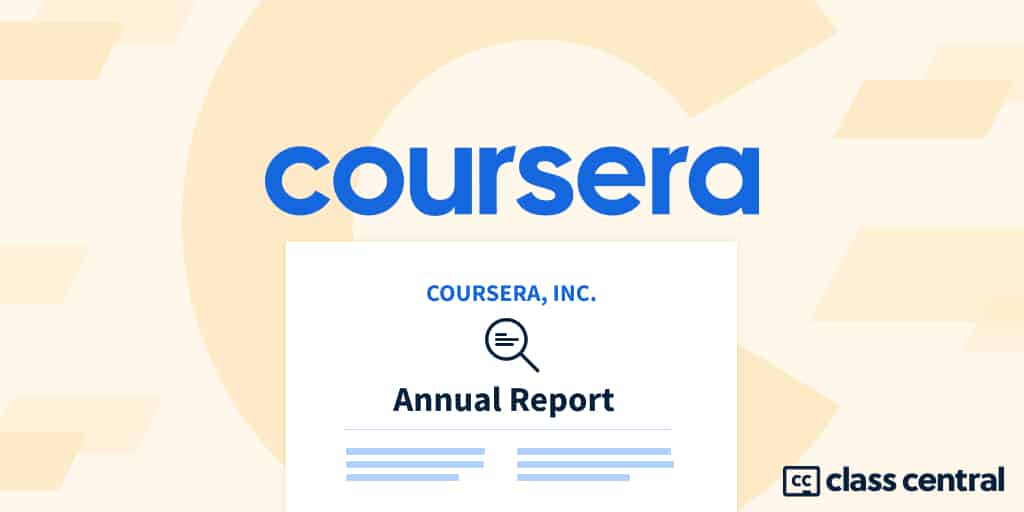
Coursera’s 2023 Annual Report: Big 5 Domination, Layoffs, Lawsuit, and Patents
Coursera sees headcount decrease and faces lawsuit in 2023, invests in proprietary content while relying on Big 5 partners.
- 10 Best NumPy Courses for 2024: Efficient Scientific Computing
- 5 Best Arduino Courses for Beginners in 2024
- 6 Best Oceanography Courses for 2024
- 24 Most Popular Online Courses Starting in July 2024
- 10 Best iOS Development Courses for 2024: Into the Walled Garden
600 Free Google Certifications
Most common
- machine learning
Popular subjects
Communication Skills
Software Development
Digital Skills
Popular courses
Cyber Security
The Musculoskeletal System: The Science of Staying Active into Old Age
An Introduction to Interactive Programming in Python (Part 1)
Organize and share your learning with Class Central Lists.
View our Lists Showcase
Creative Writing Courses and Certifications
Learn Creative Writing, earn certificates with paid and free online courses from University of Michigan, Johns Hopkins, UC Irvine, UC Berkeley and other top universities around the world. Read reviews to decide if a class is right for you.
- Grammar & Writing Courses
- Poetry Courses
- Storytelling Courses
- Calligraphy Courses
- Songwriting Courses
- Comic Books Courses
- TEDx Courses
- Short Story Writing Courses
Class Central's Top Creative Writing Courses
We've picked the best online courses to learn Creative Writing from the Class Central catalog.
Some courses are concise and get you up to speed in no time, others will be more comprehensive.
Creative Writing
Creative writing: the craft of plot, neil gaiman teaches the art of storytelling, complete creative writing - all genres - the full course, creative writing for all: a 10-day journaling challenge, relato corto de ficción: escribe desde tu experiencia personal, write your book: start strong and get it done, writing: the craft of story, creative writing: crafting personal essays with impact, start writing fiction.
- Show all 10 courses
All Creative Writing Courses
- With certificate (156)
- Free course (120)
- With free certificate (7)
- University course only (47)
- Beginner (225)
- Intermediate (5)
- Advanced (4)
- < 30 mins (63)
- 30 - 60 mins (66)
- 1 - 2 hours (71)
- 2 - 5 hours (80)
- 5 - 10 hours (34)
- 10+ hours (35)
- English (290)
- Bengali (1)
- Chinese (1)
- German (11)
- Japanese (1)
- Portuguese (8)
- Romanian (1)
- Spanish (53)
- Turkish (2)
Learn the craft of plot in creative writing with Wesleyan University's 4-week course. Master narrative arc, pacing, and plot structure to captivate readers.
- 5 hours 50 minutes
- Free Online Course (Audit)
Creative Writing: The Craft of Setting and Description
In this course aspiring writers will be introduced to the techniques that masters of fiction use to ground a story in a concrete world. From the most realist settings to the most fantastical, writers will learn how to describe the physical world in shar…
- 7 hours 25 minutes
Creative Writing: The Craft of Character
At the center of a good story are the characters in it. In this course aspiring writers will discover how to build and bring to life complex, vivid and unforgettable characters.
- 6 hours 23 minutes

Creative Writing: The Craft of Style
Hone your unique writing style with Wesleyan University's 4-week course. Learn the art of metaphor, imagery, and inventive word choice to enhance your stories.
- 7 hours 44 minutes
Wesleyan University's 26-week course covers three major creative writing genres, offering techniques for crafting plot, character, setting, and style. Includes a capstone project.
- 26 weeks, 1 hour a week
- Paid Course
I'm Brandon Sanderson, and I write stories of the fantastic: fantasy, science fiction, and thrillers. Learn about plot, wordbuilding, short stories, character, and publishing.
- Free Online Course
Learn to write engaging Fiction, Poetry, Drama, & Creative Non-Fiction and become the successful writer you want to be
- 12 hours 8 minutes
Writing a Book: Creative Writing Skills for Beginners
Writing a Book: Creative writing skills: Novel/Nonfiction book writing: Punctuation: Outlining: Fantasy world building
- 1 day 5 hours 53 minutes
Creative Writing: how to write a novel. The full course.
A full creative writing course: create engaging characters, use a 3 act narrative structure and write smart dialogues.
Creative Writing Bootcamp: Start a Brand New Story
Join best-selling author Myla Goldberg in a fun, energetic class to kickstart your writing. Learn to generate ideas, create vivid settings, empathetic villains, engaging dialogues, and develop characters.
- Free Trial Available
Creative Writing Project: Brainstorm Your Story
Kickstart your creative writing journey with this short course focused on brainstorming your story, distinguishing between plot and story, and developing a clear plan for your project.
Creative Personal Writing: Write the Real You
Learn to write from memory with Ashley C. Ford in this short course. Gain skills in self-reporting, recalling forgotten memories, and sharing your experiences. Suitable for all levels.
Creative Writing - Writer's Block Workbook Volume 2 Month 1
Five weeks' worth of keywords to create 100+ new pieces with tips to help your writing ongoing. Plus bonus content.
- 2 hours 21 minutes
Creative Writing - Writer's Block Workbook Volume 1 Month 1
Five weeks' worth of beginnings to create 100+ new pieces with tips to help your writing ongoing. Plus bonus content.
Creative Writing Project: Create a Character
Learn to create compelling characters for your novel, short story, or screenplay in less than an hour with this focused online course.
Never Stop Learning.
Get personalized course recommendations, track subjects and courses with reminders, and more.

Choose Your Test
Sat / act prep online guides and tips, the 12 best creative writing colleges and programs.
College Info

Finding a dedicated creative writing program at a school you're excited about can be a real challenge, and that's even before you start worrying about getting in. Nonetheless, there are some great options. In order to help you find the best school for you, this list rounds up some of the best colleges for creative writing in the United States .
The Best Creative Writing Programs: Ranking Criteria
You should never take college rankings as absolute truth —not even the very official-seeming US News ones. Instead, use these kinds of lists as a jumping-off place for your own exploration of colleges. Pay attention not just to what the rankings are but to how the rankings are determined.
To help with that, I'll explain how I came up with this highly unscientific list of great creative writing colleges. I started by narrowing my search down to schools that offered a specific creative writing major. (If you don't see a school you were expecting, it's likely because they only have a minor.)
In ranking the schools, I considered five major criteria:
- #1: MFA Ranking —If a school has a great graduate creative writing program, it means you'll be taught by those same professors and the excellent graduate students they attract. Schools with strong MFA programs are also more likely to have solid alumni networks and internship opportunities. However, many schools with great undergrad programs do not offer MFAs, in which case I simply focused on the other four options.
- #2: General School Reputation —The vast majority of your classes won't be in creative writing, so it's important that other parts of the school, especially the English department, are great as well.
- #3: Extracurricular Opportunities —One of the key advantages of majoring in creative writing is that it can provide access to writing opportunities outside the classroom, so I took what kind of internship programs, author readings, and literary magazines the school offers into consideration.
- #4: Diversity of Class Options —I gave extra points to schools with a variety of genre options and specific, interesting classes.
- #5: Alumni/Prestige —This last criterion is a bit more subjective: is the school known for turning out good writers? Certainly it's less important than what kind of education you'll actually get, but having a brand-name degree (so to speak) can be helpful.
The Best Creative Writing Schools
Now, let's get to the good stuff: the list of schools! The exact numbering is always arguable, so look at it as a general trend from absolutely amazing to still super great, rather than fixating on why one school is ranked #3 and another is ranked #4.
#1: Northwestern University
Northwestern's undergrad creative writing program boasts acclaimed professors and an unparalleled track record of turning out successful writers (including Divergent author Veronica Roth and short-story writer Karen Russell).
Outside the classroom, you can work on the student-run literary journal, intern at a publication in nearby Chicago, or submit to the Department of English's yearly writing competition . The university is also home to a top journalism program , so if you want to try your hand at nonfiction as well, you'll have plenty of opportunities to do so.
#2: Columbia University
Like Northwestern, Columbia is home to both a world-class creative writing program and a top journalism school (plus one of the best English departments in the country), so you have a wide range of writing-related course options. Columbia also benefits from its location in New York City, which is bursting at the seams with publishing houses, literary journals, and talented authors.

#3: University of Iowa
The University of Iowa's big draw is the infrastructure of its graduate Writers' Workshop, which is often considered the best MFA program in the country.
As an English and Creative Writing major here, you'll take classes from great young writers and established professors alike, and get to choose from a wide range of topics. This major provides transferable skills important for a liberal arts major with a creative focus. You'll also have access to the university's impressive literary community, including frequent readings, writing prizes and scholarships, and the acclaimed literary journal The Iowa Review .
#4: Emory University
Emory is renowned for its dedicated undergrad creative writing program , which draws the very best visiting scholars and writers. Students here have the chance to attend intimate question-and-answer sessions with award-winning authors, study a range of genres, compete for writing awards and scholarships, and work closely with an adviser to complete an honors project.
#5: Oberlin College
A small liberal arts school in Ohio, Oberlin offers very different advantages than the schools above do. You'll have fewer opportunities to pursue writing in the surrounding city, but the quality of the teachers and the range of courses might make up for that. Moreover, it boasts just as impressive alumni, including actress and writer Lena Dunham.
#6: Hamilton College
Hamilton is another small college, located in upstate New York. It's known for giving students the freedom to pursue their interests and the support to help them explore topics in real depth, both inside and outside the classroom. Hamilton's creative writing program takes full advantage with small classes and lots of opportunities to intern and publish; it also has one of the best writing centers in the country.
#7: Brown University
Brown's Literary Arts program offers one of the top MFAs in the US as well as an undergraduate major . For the major, you must take four creative writing workshops and six reading-intensive courses, which span an array of departments and topics, from music and literature to Middle East studies and Egyptology.

#8: Washington University in St. Louis
Washington University has an excellent creative writing MFA program, lots of super specific class options, and a number of scholarships specifically earmarked for creative writing students. This school’s undergraduate English program also offers a concentration in creative writing that allows students to specialize in a specific genre: poetry, fiction, or creative nonfiction. If you’re interested in exploring your potential in a specific writing genre, Washington University could be a great pick for you.
#9: Massachusetts Institute of Technology
MIT might not be a school you generally associate with writing, but it actually has an excellent program that offers courses in digital media and science writing, as well as creative writing, and provides plenty of guidance on how graduates can navigate the tricky job market.
Not to mention the school is located in Cambridge, a haven for book lovers and writers of all kinds. Though it probably isn’t a good fit for students who hate science, MIT is a great place for aspiring writers who want to build writing skills that are marketable in a wide range of industries.
#10: University of Michigan
University of Michigan is one of the best state universities in the country and has a top-notch MFA program. This school’s undergrad creative writing sub-concentration requires students to submit applications for admittance to advanced creative writing courses. These applications give students crucial practice in both building a writing portfolio and articulating their interest in creative writing to an audience who will evaluate their work. If you're looking to attend a big school with a great creative writing major, this is a fantastic choice.
#11: Johns Hopkins University
Johns Hopkins is another school that's known more for engineering than it is for writing, but, like MIT, it has a dedicated writing program. As a major here, you must take not only courses in prose, poetry, and literature, but also classes on topics such as philosophy and history.
#12: Colorado College
Colorado College is a small liberal arts school known for its block plan , which allows students to focus on one class per three-and-a-half-week block. The creative writing track of the English major includes a sequence of four writing workshops and also requires students to attend every reading of the Visiting Writers Series.
Bonus School: New York University
I didn't include NYU in the main list because it doesn't have a dedicated creative writing major, but it's a great school for aspiring writers nonetheless, offering one of the most impressive creative writing faculties in the country and all the benefits of a Manhattan location.

How To Pick the Best Creative Writing School for You
Just because Northwestern is a great school for creative writing doesn't mean you should set your heart on going there. (The football fans are completely terrifying, for one thing.) So where should you go then?
Here are some questions to ask yourself when looking at creative writing programs to help you determine the best school for you:
Does It Have Courses You're Interested In?
Look at the course offerings and see whether they interest you. While you can't predict exactly what classes you'll love, you want to avoid a mismatch where what you want to study and what the program offers are completely different. For example, if you want to write sonnets but the school focuses more on teaching fiction, it probably won't be a great fit for you.
Also, don't forget to look at the English courses and creative writing workshops! In most programs, you'll be taking a lot of these, too.
What Opportunities Are There To Pursue Writing Outside of Class?
I touched on this idea in the criteria section, but it's important enough that I want to reiterate it here. Some of the best writing experience you can get is found outside the classroom, so see what kind of writing-related extracurriculars a school has before committing to it.
Great options include getting involved with the campus newspaper, working on the school's literary journal, or interning at the university press.
Who Will Be Teaching You?
Who are the professors? What kind of work have they published? Check teacher ratings on Rate My Professors (but make sure to read the actual reviews—and always take them with a grain of salt).
If you're looking at a big school, there's a good chance that a lot of your teachers will be graduate students. But that's not necessarily a bad thing: a lot of the best teachers I had in college were graduate students. Just take into consideration what kind of graduate program the school has. If there's a great creative writing MFA program, then the graduate students are likely to be better writers and more engaged teachers.
What Are the Alumni Doing Now?
If you have a sense of what you want to do after you graduate, see if any alumni of the program are pursuing that type of career. The stronger the alumni network is, the more connections you'll have when it comes time to get a job.
What About the Rest of the School?
Don't pick a school for which you like the creative writing program but dread everything else about it. Most of your time will be spent doing other things, whether hanging out in the dorms, exploring off campus, or fulfilling general education requirements.
Many schools require you to apply to the creative writing major, so make doubly sure you'll be happy with your choice even if you aren't accepted to the program.
What's Next?
Are you sure a creative writing major is the right fit for you? Read our post on the pros and cons of the major to help you decide what path to take in college.
For more general advice about choosing a college, check out our complete guide to finding the right school for you. Some major factors to consider include deciding whether you're interested in a small college or a big university , an in-state or out-of-state institution , and a public or private school .

Alex is an experienced tutor and writer. Over the past five years, she has worked with almost a hundred students and written about pop culture for a wide range of publications. She graduated with honors from University of Chicago, receiving a BA in English and Anthropology, and then went on to earn an MA at NYU in Cultural Reporting and Criticism. In high school, she was a National Merit Scholar, took 12 AP tests and scored 99 percentile scores on the SAT and ACT.
Ask a Question Below
Have any questions about this article or other topics? Ask below and we'll reply!
Improve With Our Famous Guides
- For All Students
The 5 Strategies You Must Be Using to Improve 160+ SAT Points
How to Get a Perfect 1600, by a Perfect Scorer
Series: How to Get 800 on Each SAT Section:
Score 800 on SAT Math
Score 800 on SAT Reading
Score 800 on SAT Writing
Series: How to Get to 600 on Each SAT Section:
Score 600 on SAT Math
Score 600 on SAT Reading
Score 600 on SAT Writing
Free Complete Official SAT Practice Tests
What SAT Target Score Should You Be Aiming For?
15 Strategies to Improve Your SAT Essay
The 5 Strategies You Must Be Using to Improve 4+ ACT Points
How to Get a Perfect 36 ACT, by a Perfect Scorer
Series: How to Get 36 on Each ACT Section:
36 on ACT English
36 on ACT Math
36 on ACT Reading
36 on ACT Science
Series: How to Get to 24 on Each ACT Section:
24 on ACT English
24 on ACT Math
24 on ACT Reading
24 on ACT Science
What ACT target score should you be aiming for?
ACT Vocabulary You Must Know
ACT Writing: 15 Tips to Raise Your Essay Score
How to Get Into Harvard and the Ivy League
How to Get a Perfect 4.0 GPA
How to Write an Amazing College Essay
What Exactly Are Colleges Looking For?
Is the ACT easier than the SAT? A Comprehensive Guide
Should you retake your SAT or ACT?
When should you take the SAT or ACT?
Get Informed
Get the latest articles and test prep tips!

Looking for Graduate School Test Prep?
Check out our top-rated graduate blogs here:
GRE Online Prep Blog
GMAT Online Prep Blog
TOEFL Online Prep Blog
Holly R. "I am absolutely overjoyed and cannot thank you enough for helping me!”

Creative Writing Classes: Are They Really Worth It?

The rumors are true. You can become a successful author without a degree in creative writing .
In fact, it’s even possible to learn the craft on the cheap, scraping together insight from free articles, library books, and fellow writers. You don’t have to take a formal writing course at all .
So why do creative writing classes even exist?
Loads of reasons, actually.
For one thing, many aspiring writers learn best in a structured classroom or workshop setting with personal attention from an instructor.
Creative writing courses also provide opportunities to form relationships with other writers and even find a mentor. They often require you to share your writing and provide feedback on your classmates’ work, both of which teach you how to think more analytically about the craft and embrace constructive criticism .
You don’t even have to be an aspiring author to reap the benefits of these classes.
You could be a college student looking to boost your communication skills. Or a senior hoping to share their story with future generations. Or a person who’s just looking for a fun hobby.
There are plenty of reasons to pursue formal instruction in writing. The trick is determining whether a class can help you meet your current goals and, if so, which course is right for you.
You and I are going to think through that together. We’ll talk about what you can learn in these courses, key considerations when choosing your class, and how to get the most out of it.
You’ll even leave with some tips for overcoming the biggest challenges of writing workshops… like the part where you have to share your hot mess of a first draft with a room full of semi-strangers.
First, we need to get clear on what creative writing even is.
What Counts as Creative Writing?

Creative writing is a ridiculously broad term that can mean a lot of things. It basically covers all forms of writing that are creative, personal, and expressive rather than informative and objective.
Creative writing uses literary devices like metaphor and symbolism to create an emotional experience for the reader. In non-creative writing, factual clarity is the primary goal, which often means using direct language and avoiding emotion or bias.
For example, a novel is creative writing. A newspaper article is not.
A poem is creative writing. The user manual for your new smart toilet is not.
If you’re looking at a class that promises to teach you “creative writing,” take a close look at the description to make sure it fits your actual goals. That course could be covering any one of—or even all of—these things:
Forms of Creative Writing
There are three primary forms of creative writing. Each one has approximately half a billion sub-forms and genres , which is why it’s a good idea to be specific in your search for creative writing classes.
Here are the three main forms of creative writing:
Fiction - Any narrative that isn’t true or is even partially made up falls under the category of fiction. This includes novels, novellas , and short stories as well as scripted fiction like plays, screenplays, and teleplays.
Creative nonfiction - This includes anything that’s true but expressed creatively through the biased perspective of the author. In this category, you’ll find things like memoirs , personal essays, travel writing, nature writing, and literary journalism.
Poetry - Poetry has so many subgenres it’s borderline impossible to define. Generally speaking, it’s an expression of abstract ideas or emotions, often using evocative sensory details and unconventional sentence structures. It may or may not have a deliberate rhythm, it may or may not rhyme, and it might even tell a true or made-up story, stepping its bold little foot into the territory of narrative essays or fiction.
Where to Find Creative Writing Classes
Once you know which specific creative writing skills you’d like to develop, how do you find the class that’s right for you?
Turns out, there are a ton of places to look.
If you want to take an in-person course, you can see what the local community college has to offer. You might also be able to find creative writing classes at a local community center or attend a workshop hosted by a writers’ group.
There are also absolute buckets of online writing courses. Browse the options available on sites like Coursera , Udemy , MasterClass , and Gotham Writers Workshop . Or Google exactly what you’re looking for and see what comes up.
You’ll discover that you have a ton of options. The next challenge is narrowing them down.
How to Choose the Right Creative Writing Class

Once you realize just how many creative writing courses are out there, you may feel a bit overwhelmed. How are you supposed to know which one is right for you?
Start by asking yourself these seven easy-peasy questions:
1. What Do You Want to Write?
Do you want to write fiction? Nonfiction? Poetry?
Whichever one it is, are you able to narrow your preferences down even further?
Let’s say you know you want to study fiction writing. Is it because you dream of being a novelist? Because you have a great screenplay idea? Or maybe you want to be a novelist, but you’d like to learn the fundamentals by writing a short story first.
Don’t be afraid to get even more specific. For example, if you’d love to learn how to write fantasy , see what fantasy writing courses are out there.
You may find options that are too specific for where you are in your journey. If you’re still not clear on how to craft a character arc or create unforgettable characters , it might not be time to worry about developing magic systems .
But maybe a class on fantasy story development will be more beneficial than a more generic fiction writing class.
On that note, if you want to focus on genre fiction (like fantasy, sci-fi , romance , horror … that kind of stuff), make sure you take a genre-friendly class. Some creative writing classes—especially in academia—focus on literary fiction and get a little snooty about the commercial stuff.
2. What are Your Goals?
Think about why you want to take a creative writing class in the first place. What do you hope to get out of this?
Common motivations include:
- Exploring creative writing as a hobby
- Building the skills necessary to become a successful author
- Unwinding and having fun through self-expression
- Leaving a legacy
- Learning how to write books that sell
- Becoming more involved in the writing community
- Sharpening specific creative writing skills, like character development or prose
Based on your goal, which writing courses are likely to help you the most?
Most class descriptions provide a breakdown of the objectives for the class, indicate what kind of assignments or major project you’ll complete, and lay out the topics you’ll cover. For many online courses, you can even read reviews from past students.
All this information can give you a clear indication of what the class can (or cannot) do to help you on your journey.
3. Do You Want to Learn Online or in Person?
If you prefer online writing courses, you’ll have way more options to choose from. You can also learn from the comfort of your own home and enjoy the opportunity to connect with writers from all over the country… maybe even all over the world.
Depending on the way the class is set up, you might also have a flexible schedule. Some online courses feature pre-recorded video lectures and exercises you can do on your own time. The downside is that you can’t easily connect with your fellow learners and may not get feedback on your work.
Other online creative writing classes have live sessions and assignments with real deadlines, so there’s less flexibility but you can still enjoy the ease of a twenty-foot commute.
In-person classes are great because they help you build relationships with fellow writers in your community (or close enough). They also promote a deeper, more focused commitment. Not only do you have to block out the time and show up, you also physically remove yourself from the distractions of your personal life.
There are pros and cons to both options. Only you can decide what makes sense for you.
4. What Skill Level Does This Course Demand?
If you already have some knowledge of writing fundamentals, you’ll be bored senseless in a class that teaches you what symbolism is and how to use dialogue tags .
You’ll also be miserable in a class that’s way over your head.
Once again, the course description should help you deduce whether this course will be tough enough to advance your writing skills without being so challenging that you can’t keep up. When in doubt, email the instructor and ask if their class is right for someone of your experience level.
5. What Do You Know About the Instructor?
Is the instructor published or working professionally in your area of study? What are their strengths as a teacher? Does this seem like the right person to help you reach your writing goals?
Whenever possible check out reviews or ask previous students what they say about their class and teaching style. Just because an instructor gets great work out of their students, that doesn’t automatically mean they’re the best guide for everyone.
If your only objective is to have fun exploring a new hobby, you probably don’t need the “look to your left, look to your right, only one of you will survive this class” instructor.
6. What Do You Know About the Other Students?
You don’t need to get your hands on the class roster. I just mean, what do you know about the type of people who typically take this particular writing course?
What are their goals? How advanced are their creative writing skills? Are they creative writing majors in a competitive academic environment? Newbies who are just trying to get a sense of what the writing world is like? Aspiring indie authors eager to encourage one another?
Also, how many of them are there? Whether you’re hoping for more focused guidance from the instructor or kiiiiinda wanna blend into the crowd, class size is something to consider.
7. How Much Does It Cost?
Depending on how extensive they are or where you find them, creative writing courses can cost anywhere from a little to a whole, whole lot. Before you get attached to any specific class, search your soul (and your bank account) and decide how much you’re ready to invest in building your writing skills.
The right answer is whatever answer is right for you .
What to Expect in a Creative Writing Course

Okay. You’ve enrolled, you bought a new notebook, you’ve got your four-color pen… now what? What can you expect from your creative writing course?
Seeing as how this grand world of ours is full of so many different types of creative writing and different writing classes and different writing instructors, I can’t give you a super specific answer.
But I’ll do my best to provide a general overview of what you might experience in a very typical writing class.
What You’ll Learn
I know I seem pretty obsessed with course descriptions at this point, but that really is the best place to look if you want to know what topics your instructor will cover.
Other than that, here are some concepts that are commonly covered in the following creative writing classes:
In a standard fiction writing class, you’ll likely go over all the essential building blocks of a story. That includes plot structure , character development , conflict , setting , and theme .
You might also have an opportunity to dive into the prose itself, working to perfect more detailed skills like dialogue , scene description , and pacing .
If you study any form of script writing (playwriting, screenwriting, or teleplay writing), you may also learn formatting rules and how to write action, especially if it’s a beginner class.
You’ll have a lot of writing assignments. Some creative writing classes are structured to help you complete a project, in which case your assignments might build towards writing a script, novel, novella, short story, or children’s book.
You can probably expect a lot of reading assignments, too, as your instructor will want you to see how published authors have mastered the skills you’re learning.
Creative Nonfiction
In this type of course, you’ll most likely learn how to find the narrative arc in a true story, zero in on a theme, and tell a compelling tale without abandoning reality.
In some classes, you might also explore ethical issues surrounding nonfiction writing or dive into advanced topics like incorporating research and blending personal stories with societal issues.
As for assignments, it’s the same deal as if you were learning fiction. You’ll probably read work by the greats, do some writing of your own, and end the class with at least one good personal essay or the beginnings of a great memoir.
In a poetry class, you can expect to cover different poetic forms (haiku, sonnet, all that jazz) and learn a truckload of literary devices. You’ll probably dive into elements like meter, rhyme, and rhythm.
Try not to be too shocked when I tell you that you’ll also write poems—like, a ton of poems—and read even more.
Class Structure
As for the way the class is structured, your course will land somewhere on the lecture-to-workshop spectrum. Allow me to explain.
In some creative writing classes, you mostly listen to the teacher teach, do some assigned reading, and turn your writing assignments in to be graded or critiqued by the instructor.
Actually, there are online creative writing classes where you don’t even do that much.
MasterClass courses, for example, are completely self-directed, with pre-recorded video lectures and workbooks you go through on your own. You don’t share your work with the instructor because the instructors are people like Margaret Atwood, and Margaret Atwood is very busy doing other things.
On the other end of the spectrum are writing workshops, where there’s a lot less teaching and loads more writing. In this scenario, you and your fellow students spend most of your class time sharing and providing feedback on one another’s work.
Then, of course, there are creative writing courses that land somewhere between the two, with a little sharing, a little lecturing, and hopefully a lot of learning.
Specialized Creative Writing Courses
Another thing you might notice on your quest to find creative writing classes is that some of these courses get very specific. There are plenty of advanced skills you can learn to take your writing to the next level, boost your qualifications in a specific area, or improve your odds of making a living off your words.
Let’s take a quick look at the kind of specialized classes you might find as you search for creative writing courses.
By Skill
Rather than learning the basics of a particular form of writing, you can take classes that invite you to focus on a single skill or element.
You might learn how to craft a compelling plot, develop characters with psychological and emotional depth, or write for a specific audience .
You can also find a course that will help you develop non-writing skills that will still make you a better writer, like developmental or copy editing .
As I mentioned before, it may be worth looking for creative writing classes that are specific to your genre. Each genre comes with its own tropes, conventions, and reader expectations. You can embrace or subvert them, but you can’t do either if you don’t know them.
You might find more generalized courses like “How to Write Mysteries” or more specific ones like “How to Build Romantic Tension.”
The Business
Then there are the courses that focus less on the craft of creative writing and more on the business of it .
If you hope to publish traditionally , you might look for classes on writing query letters , creating book proposals, or navigating the publishing industry as a whole.
If you plan to self-publish , you can find courses on writing to market , developing a marketing plan , the entire self-publishing process , or any of the other six thousand things indie authors have to think about.
This kind of education can be extremely helpful if you hope to make a living from your words.
Seizing the Opportunity to Build a Community

Writers need other writers. Your peers can inspire you to stay on course, share resources and opportunities, and possibly even connect you with gatekeepers when you’re ready to publish.
Most importantly, they understand the journey you’re on. That might not seem like a big deal now, but you’ll see the benefit of it when you’re standing there in your salsa-stained sweatshirt, trying to explain to your helplessly confused spouse that you’re freaking out because your protagonist derailed your entire third act by making a choice that wasn’t in the outline .
Yeah. Writing gets weird. Your people can help you get through the weirdness, and writing courses present great opportunities for finding your community.
Here’s how to make it happen:
Connecting With Classmates
The tricks for making friends in a creative writing class are the same as in any other context. Make friendly conversation before and after class and during breaks. Share ideas or resources that might be helpful.
Focus on connecting with people you’d genuinely like to be friends with. The relationships that help you the most in the long term will always be the ones that start from a real connection.
Also keep in mind that a creative writing class is a vulnerable place, especially if it’s a workshop where everyone is sharing early drafts.
When you offer feedback to your fellow writers, be kind and constructive. On the flip side, notice which of your classmates know how to be helpful without scoffing at your efforts. That combination of positive and enriching is absolutely essential for a long-term writer friendship.
Staying Connected
The next challenge is staying in touch with these people after the course ends. There are many ways to do this.
Tell the person or people you want to stay in touch with that you want to stay in touch with them. Swap phone numbers or email addresses if you haven’t already.
You could also invite someone to meet up for lunch or coffee in the near future.
You could arrange to be critique partners for one another on your current project. Or simply agree to be accountability partners, checking in with each other once a week to see how things are going.
If you really clicked with your classmates, you might consider creating a writers’ group. This happened with an online essay writing class I took once. We continued sharing personal essays and giving feedback for about a year after the course ended.
If all of these options overwhelm you, start small. Become social media chums. Engage with their content. As you become more comfortable, send them a private message asking how their latest work in progress is going. Build the relationship actively but gradually.
Common Obstacles

I promised to go over some of the trickier or more intimidating aspects of creative writing courses. These are the little obstacles that crop up when you’re suddenly in a position of having to share your work or craft masterful writing on someone else’s schedule.
It can be overwhelming, but it’s all survivable. And, as is the case with most overwhelming things, these challenges will build character and better prepare you for a writing career, if that’s what you’re after.
Writer’s Block
Writer’s block is that thing where all your creative gears seem to come to a grinding halt. You can’t think of a single story idea or figure out what happens next or even write one coherent sentence.
It’s a frustrating problem that gets even tougher when you have to have ten pages ready to share with the class by Friday.
So how do you get past it?
The best move is to first identify what’s really going on. Your imagination might be frozen because you’re afraid your story will suck. Or maybe you can’t quiet your inner critic or you’ve got a lot going on in your life and your brain can’t handle another job right now.
You can find a ton of exercises to work through these issues in this article . In the meantime, one of the best ways to get through writer’s block is to simply let it be bad. Let yourself write garbage, if that’s how it has to be. You can fix it once it’s on the page.
Fear of Feedback
Not exactly stoked to have a bunch of people you just met tell you what’s wrong with your story? None of us are, my friend.
Nevertheless, receiving constructive criticism is crucial for improving your skills. Plus, if you plan to build a writing career, you’ll be receiving loads of feedback on your work for the rest of your life. Creative writing classes can help you ease into this jarring scenario so you can be a real pro about it when you receive notes from agents, editors, and readers.
We actually have a guide on managing this fear, too, so I’ll just give you the short version for now:
Focus on becoming a better writer rather than proving that you’re a good one.
You might already be fantastic. But you can always be better, and if that’s your goal, you’ll be able to appreciate feedback for the gift that it is.
Meeting Deadlines
Creative writing almost always takes longer than we think it should. In fact, the more you learn, the longer you’ll probably spend on your assignments.
I recommend scheduling your writing time in advance. Block out writing sessions and stick to them.
Not only does this help you prioritize your writing rather than leaving it to the last minute, it also trains your brain to enter the creative zone when your official writing time rolls around. That helps you get the work done faster.
You can find more tips on creating an effective writing schedule here , advice for building a writing habit here , and tricks for writing faster here .
Keep Learning Beyond Creative Writing Classes

You won’t learn all the creative writing skills you need in a single class. You won’t even learn them in a single lifetime.
Great writers pursue education continuously. But that doesn’t mean you have to spend all your walkin’ around money on online writing classes.
You also learn the craft by reading the authors you admire, studying the way they structure their stories and shape their prose.
You learn by sharing your work with critique partners for feedback and by examining their work—an exercise that trains you to think more analytically about what makes a great story great.
You can read books and articles on writing. You can attend conferences and seminars and literary events.
And you can hang out with us here at Dabble.
We’ve got loads of free articles and other resources in DabbleU . We’ve got a free ebook that walks you through the entire process of writing a novel. We’ve got a free newsletter that delivers hot tips right to your inbox.
All of this is available to you even if you don’t use our super rad, all-in-one writing tool .
And if you do ?
So glad you asked. Premium Dabble subscribers also get access to a bonus, information-packed newsletter and exclusive workshops. (You can get a sneak peek of one here .)
Not a Dabbler yet, but always been a little curious? Click this link for a free trial. That gets you access to all Premium features for two weeks. You don’t even have to enter a credit card!
Consider it a free education.
Abi Wurdeman is the author of Cross-Section of a Human Heart: A Memoir of Early Adulthood, as well as the novella, Holiday Gifts for Insufferable People. She also writes for film and television with her brother and writing partner, Phil Wurdeman. On occasion, Abi pretends to be a poet. One of her poems is (legally) stamped into a sidewalk in Santa Clarita, California. When she’s not writing, Abi is most likely hiking, reading, or texting her mother pictures of her houseplants to ask why they look like that.
SHARE THIS:

TAKE A BREAK FROM WRITING...
Read. learn. create..

Whether you're trying to learn the craft of writing or find your way in the publishing business, it always helps to study those who have gone before. Here's how to do an author study that will inspire your own journey.

Kinda wish you didn't have to choose between genres when you write your next novel? Maybe you don't have to! Get to know hybrid genres and what it takes to write a great cross-genre story.

No matter how much we want to ignore it, successful authors need a website. But there's more to a good author website than just throwing up a few nice words and pictures of your book. If you do it right, it could be your most powerful marketing tool.
- Our Mission
Creative Writing in the Early Elementary Grades
A project that incorporates both standard and creative elements of storytelling can help young learners strengthen their literacy skills.

What can creative writing look, feel, and sound like in a first grade classroom? How can creative writing become a joyful and meaningful learning experience, and how can we educators facilitate the creative process and allow young writers to use their imagination when writing?
Graphic organizers, mind maps, and storyboards are certainly great tools for narrative building and planning, but they do not necessarily scaffold the creative process that story writing requires. In reality, they might even restrict students’ creativity while they “box” ideas in predetermined templates. This year, in my class, going play-based and hands-on has turned out to be a tremendous success.
Examining Elements of Creative Writing in First Grade
For this particular unit, my first grade students were examining literature and storytelling. After they had enjoyed several read-alouds, explored story elements, and studied the story mountain (beginning, rising action, conflict, resolution, and ending) as a team, it was time for them to write their very own stories.
They kicked off by creating their main character and decided on the character’s appearance, personality, likes, and dislikes. They also had the choice to play the main character role in the story. In both cases, while still brainstorming, it was time for action: They drew and decorated their characters with markers and pencils, cut them out, and used a Popsicle stick to make a puppet.
They became even more motivated to continue as they saw their characters come to life. My students spontaneously started interacting with each other and their puppets—creating stories and being imaginative—they went right into storytelling mode. This created the perfect opportunity for me to step back and observe my students’ initiative, creativity, and social and communication skills, not to mention their sense of accomplishment and joy.
Adding Artful Components to the Story
After they had engaged with their characters and interacted with others, it was time for the young writers to further develop their stories and think of a scenario leading to the rising action and resolution. This was the point when loose parts played a crucial role in the storytelling process. Counters, pipe cleaners, bits of paper, pebbles, dice, and buttons became houses, trees, magic wands, you name it. These bits and bobs from around the classroom became a valuable, zero-cost resource.
While students actively arranged and rearranged their chosen loose parts, they wondered about what would happen next in their stories. Unexpectedly, some students chose to collaborate and co-created stories by joining their imagination and characters in one story. In this step of the creative process, the use of loose parts was truly empowering: Before jotting anything down in their notebooks, my students physically, mentally, and verbally constructed their narratives and shared them with their partners.
Turning Ideas Into Words
With the mental representation of their narratives ready, it was all a matter of scribing their ideas. For that, we followed our usual class routines and resources such as word banks, sentence starters, and buddy support. All my students were engaged and confident, and when struggling with ideas, they resorted to loose parts again. As my first grade is a multicultural classroom, some of my students needed language support . However, with all of them hooked on their stories, supporting those who needed help with vocabulary, sentence construction, and spelling was simplified.
I conferred with students individually and in small groups to understand their thinking and offered feedback on paragraphing and some word choice. Instead of using notebooks for their first drafts, they chose to use mini-boards, which motivated them even more and supported them to make quick adjustments to their narratives. Finally, after receiving feedback, they moved on to writing their final drafts and designing their covers in order to turn their stories into books. Each student took their book home to share it with their family after reading it with the class.
Sharing Stories and Making Memorable Learning Experiences
What good is a book if it isn’t read and enjoyed? Buddy reading was the last step of the process but certainly not the least exciting. My students read aloud to each other, commenting on their favorite bits of the story and appreciating the illustrations. The whole project, from getting their characters ready to publishing and reading their books, took around five hours divided into five days.
When reflecting on the writing process, my students said that what they appreciated the most was the making of their puppets and illustrating their stories, highlighting the importance of integrating arts and writing. When asked about what was challenging, they replied that it was creating all the parts of the story mountain. However, they all said that using loose parts was a helpful strategy that they would use again—which they spontaneously have done in subsequent writing engagements. Lastly, when asked how they felt, some of the words they used were “proud,” “good,” and “joyful!”
A recent UNESCO report on the importance of happiness in learning refers to neuroscience research that proves our affective and cognitive domains are interconnected and interdependent. Therefore, emotions do affect learning! Joy is not a trade-off for academic achievement. Creating positive learning experiences makes learning stick.
Very often, students fear and avoid writing as a consequence of previous negative writing experiences. Combining art and a play-based approach to creative writing in first grade can set students on a path to success by building on their confidence, creativity, imagination, and sense of accomplishment. I have witnessed that the integration of art and writing has helped my students discover how writing can be a joyful and memorable experience where they can all be amazing storytellers and writers.
NEW VIDEO COURSE
Learn How to Write a Novel, Join Tom Bromley for a writing master class.
Learn How to Write a Novel
Join Tom Bromley for a writing master class and finish your first draft in 3 months.
48 Best Kids Creative Writing Classes in 2024
Showing 48 courses that match your search.
2024 I Love to Write Camp
Kansas City Writers
Explore the creative writing process without worrying about your grade! These workshops include experience with free writing of many types of writing and techniques to help your writing come alive.
Website: https://www.kansascitywriters.com/workshops-for-kids.html
Categories: Kids
Start date:
Open all year round
Prerequisites: No prerequisites
Teen Summer: Say It Like You Mean It
Whether characters are arguing, bantering, betraying secrets, or confessing their guilt, dialogue can be one of the most challenging parts of writing a scene. In this workshop, we’ll learn about the various ways you can use dialogue in your writing, such as to advance the plot or develop characters.
Website: https://grubstreet.org/workshop/teen-summer-say-it-like-y...
August, 2024
Teen Summer: From Story to Screen: Intro to Screenwriting
In this screenwriting and film workshop, we will learn Aristotle’s poetics, character work, scene writing, and dialogue. Further, we will immerse ourselves in clips from movies and short films and discuss how they relate to our learning techniques.
Website: https://grubstreet.org/workshop/teen-summer-from-story-to...
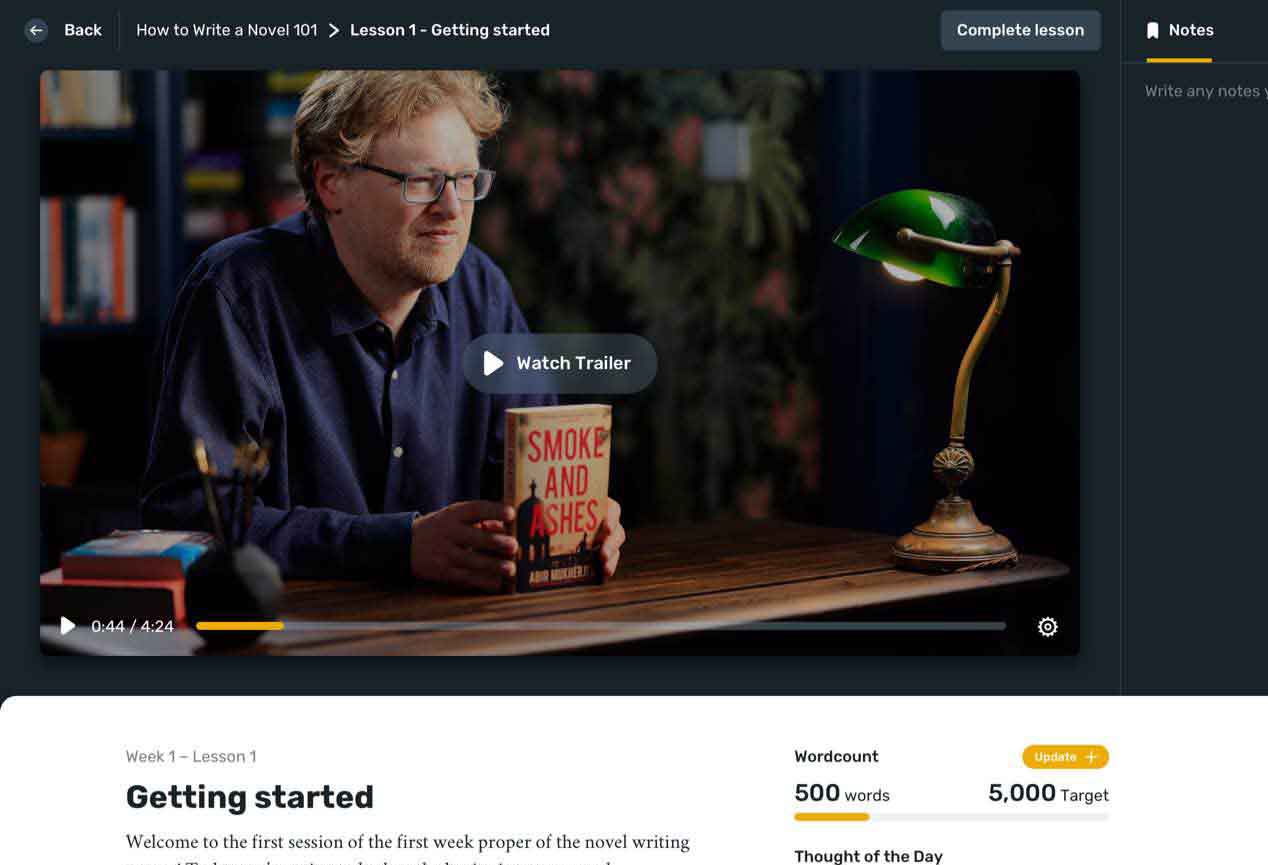
How to Write a Novel
Your story matters. Unlock your potential with daily video lessons from bestselling ghostwriter Tom Bromley, and finish your first draft in just 3 months. Learn more →
Teen Summer: August Week of Creative Writing
Whether you’re working towards a novel or writing short stories, poetry, plays or genre-fluid experiments, this is an opportunity to improve your skills and learn about different literary techniques to help your big ideas come to life.
Website: https://grubstreet.org/workshop/teen-summer-august-week-o...
Teen Summer: DreamSpaces, Folklore, and Afrofuturism: World Building through Memory
Have you ever inserted yourself in a memory that wasn’t yours? Woke up with a sense of deja vu you couldn’t shake? In this workshop we will practice entering our DreamSpaces–memory guided planes constructed under fragments of our past present and future–to sharpen world building in our writing.
Website: https://grubstreet.org/workshop/teen-summer-dreamspaces-f...
College Admissions Essay
Brave Writer
College Admissions Essay will center on the Common Application essay prompts. Students applying to colleges that use their own applications are welcome to bring another essay prompt into class and work with it instead. Each student will complete one essay during the class, learning from and inspiring the others.
Website: https://bravewriter.com/online-classes/college-admission-...
Online Feedback: Children’s Books
Writing NSW
In this online writing course, author Belinda Murrell will provide feedback on your writing for children, enabling you to hone your skills over five months. Feedback will vary depending on each submission, but it may focus on areas such as storytelling, plot, structure, characterisation, theme or voice.
Website: https://writingnsw.org.au/whats-on/courses/online-feedbac...
Elementary Writing: Animal Stories
In this five-week course, each student will conceive and draft a short story of up to 1,200 words. We will begin with a triggering image and build from there, reading examples, working with myths and fairy tales, drafting and revising, and exploring how to begin and how to end.
Website: https://bravewriter.com/online-classes/writing-the-short-...
April, 2024
And Action— Screenwriting and Filmmaking for Ages 11-13
Lighthouse Writers Workshop
Do you want to bring the written word to life? Transform your imagination into captivating stories and master the art of cinematic storytelling by learning how to develop compelling characters, craft engaging plots, and structure screenplays for maximum impact.
Website: https://lighthousewriters.org/workshop/and-action%E2%80%9...
Wild, Weird, and Supernatural: Sci-Fi and Fantasy Camp For Ages 14-18
Let’s see how far our imaginations can take us! This workshop is for writers interested in genres within the speculative fiction umbrella. Genres that ask “what if?” are all welcome including sci-fi, fantasy, supernatural, horror, dystopian fiction, and surrealism.
Website: https://lighthousewriters.org/workshop/wild-weird-and-sup...
Poetry Meets Fiction for Ages 11-13
Do you love writing poems and fiction? In this camp, poetry and fiction intertwine to create captivating prose poems and bite-sized flash fiction. We'll examine the works of authors who masterfully blend these genres to weave tales that dance with lyrical beauty and narrative intrigue.
Website: https://lighthousewriters.org/workshop/poetry-meets-ficti...
Brave Writer 102: Learning to Revise
For parents struggling to help their children with writing, this course provides guidance on navigating the revision process. Learn how to offer constructive feedback without discouraging your child, balancing encouragement with practical writing advice.
Website: https://bravewriter.com/online-classes/brave-writer-102-l...
March, 2024
Prerequisites: Students are recommended to take Brave Writer 101 before this course.
How to choose a creative writing class for kids
Looking to help a child build their writing skillset, learn more about the craft of writing, or finally finish that story they've been working on? You’re in the right place. That’s why we built this directory of the best creative writing courses.
However, creative writing classes aren’t one size fit all. If you’re planning to enroll your child in a creative writing class for kids, you’ll want to make sure that it matches what you’re seeking.
So make sure to consider the following questions when you’re researching kids writing courses:
- Who is the instructor? How many years of experience do they have in working with children?
- Is there something in particular you’d like your child to learn about writing? Does this course include it?
- How long is the course, and where is it taught?
- How much does the kids writing course cost? Does it fit into your budget?
More kids creative writing resources
Whether you’re a new or established author, there are always evergreen resources out there to how to help a kid get a headstart on writing.
Free online materials
- Creative Writing Prompts (resource)
- Book Title Generator (resource)
- Character Name Generator (resource)
- Plot Generator (resource)
- Short Stories (resource)
- How to Write a Novel (blog post)
- How to Edit a Book (blog post)
Recommended books
- For writers in the UK: Writers' & Artists' Yearbook
- For writers in the US: Writer’s Market 2020
Join a community of over 1 million authors
Reedsy is more than just a blog. Become a member today to discover how we can help you publish a beautiful book.

Save your shortlist
Enter your email address to save your shortlist so that you don't lose it!
By continuing, you will also receive Reedsy's weekly publishing tips and access to our free webinars.

We sent over your shortlist. Thank you for using Reedsy's Writing Courses Directory, happy publishing! 🙌
NEW REEDSY COURSE
Finish your book in three months

1 million authors trust the professionals on Reedsy. Come meet them.
Enter your email or get started with a social account:
Category : en:Places in Saratov Oblast
| Newest and oldest pages |
|---|
| : |
- Fundamental
- » All languages
- » English
- » All topics
- » Names
- » Places
- » Places in Russia
- » Places in Saratov Oblast
English names of places of all sorts in Saratov Oblast, a federal subject ( oblast ) of Russia .
NOTE : This is a name category. It should contain names of specific places in Saratov Oblast, not merely terms related to places in Saratov Oblast, and should also not contain general terms for types of places in Saratov Oblast.
Subcategories
This category has the following 2 subcategories, out of 2 total.
- en:Cities in Saratov Oblast (0 c, 2 e)
- en:Towns in Saratov Oblast (0 c, 1 e)
Pages in category "en:Places in Saratov Oblast"
The following 3 pages are in this category, out of 3 total.
- en:Places in Russia
- en:Saratov Oblast
- en:List of name categories
- Places in Saratov Oblast
- Pages using DynamicPageList
Navigation menu

IMAGES
VIDEO
COMMENTS
15 hours. Best University-level Creative Writing Course (Wesleyan University) 5-6 hours. Best Course to Find Your Voice (Neil Gaiman) 4-5 hours. Best Practical Writing Course With Support (Trace Crawford) 12 hours. Best Course to Overcome Writer's Block: 10-Day Journaling Challenge (Emily Gould) 1-2 hours.
2. Gotham Writers' Workshop. 💲 Cost: $165 - $409 (plus registration fees) 👨🏫 Type: Video lectures, live Zoom classes, assignments, critique. The largest adult-education writing school in the US, Gotham Writers has been helping budding authors hone their skills since the 1990s.
In her first-ever online writing class, the author of The Handmaid's Tale teaches how she crafts compelling stories, from historical to speculative fiction, that remain timeless and relevant. Explore Margaret's creative process for developing ideas into novels with strong structures and nuanced characters. Instructor (s): Margaret Atwood.
Udemy — Secret Sauce of Great Writing — Most Affordable. MasterClass — Shonda Rhimes Teaches Writing for Television — Best for Multimedia Writing. The Novelry — Writing for Children — Best for Children's Literature. Writer's Digest University — Creative Writing 101 — Best for Beginners. Bookfox — Two Weeks to Your Best ...
Reedsy's course, led by Tom Bromley, is a 101-day program aimed at helping writers finish their first novel draft. It includes daily video masterclasses, a structured approach for drafting, and access to a forum and live webinars for interaction and feedback. The course covers various aspects of novel writing, including preparation, character ...
Support the Muse. The Muse Writers Center is a 501 (c)3 nonprofit organization and your tax-deductible donation will help us continue to grow and serve the Hampton Roads literary community, including offering scholarships and tuition help as well as through our outreach programs to youth, seniors, and the military community. Donate Now.
Works in Progress is Hugo House's semi-monthly writing open mic series inclusive of diverse formats. Read your work—poetry, fiction, essays, memoirs, plays, music, comedy, and more—and connect with your literary community. Explore your creativity through writing classes, events, and programs at Hugo House, whatever your interest or budget.
The Creative Writing 101 six-week course by Gotham Writers is an excellent place to start. This level one online six-week class focuses on slowly building a writing habit while teaching you about the show and tell of writing, individuality, fiction, nonfiction, and how to get better at the craft.
Scheduled for March 22-24, 2024, at the Warwick Allerton Hotel in Chicago, this event is a dynamic gathering for aspiring writers. It includes a welcome reception, two days of workshops, panels, pitch sessions, master classes, and more. The conference aims to inspire and educate, covering a range of topics for writers of all levels.
In summary, here are 10 of our most popular creative writing courses. Creative Writing: Wesleyan University. Write Your First Novel: Michigan State University. Introduction to Psychology : Yale University. Script Writing: Write a Pilot Episode for a TV or Web Series (Project-Centered Course): Michigan State University.
Learn creative writing with online courses delivered through edX to advance your career today.
7. The Best Online Creative Writing Courses Foster a Writing Community. A creative writing course fosters a creative writing community. This community gives you the motivation to create, as it creates a safe environment to experiment, take risks, and grow in your writing practice.
Stanford Continuing Studies' online creative writing courses make it easy to take courses taught by instructors from Stanford's writing community. Thanks to the flexibility of the online format, these courses can be taken anywhere, anytime—a plus for students who lead busy lives or for whom regular travel to the Stanford campus is not possible.
For over three decades The Writers Studio has been helping students become stronger, more resourceful writers — with more craft at their disposal, more knowledge of what makes a piece of creative writing satisfying to a reader, and more access to the full range of their emotions and imagination. We have developed our own teaching method ...
Action: In creative writing, action should occur for a reason—characters' actions should be based on their motivations, their points of view, and their previous choices. A protagonist's actions should always propel them toward their main goal in a way that is related to the plot events at hand. A character's goals affect their character ...
We've picked the best online courses to learn Creative Writing from the Class Central catalog. Some courses are concise and get you up to speed in no time, others will be more comprehensive. Read the Guide. Brigham Young University. Creative Writing. 6 reviews. Creative Writing: The Craft of Plot.
University of Michigan is one of the best state universities in the country and has a top-notch MFA program. This school's undergrad creative writing sub-concentration requires students to submit applications for admittance to advanced creative writing courses. These applications give students crucial practice in both building a writing ...
Creative writing uses literary devices like metaphor and symbolism to create an emotional experience for the reader. In non-creative writing, factual clarity is the primary goal, which often means using direct language and avoiding emotion or bias. For example, a novel is creative writing. A newspaper article is not.
Combining art and a play-based approach to creative writing in first grade can set students on a path to success by building on their confidence, creativity, imagination, and sense of accomplishment. I have witnessed that the integration of art and writing has helped my students discover how writing can be a joyful and memorable experience ...
Writing. Editing. Persuasion. Learn the mechanics and strategy of effective communication. Enroll for free. ... Creative ways to use syntax. ... This series of courses targets the writing side of that recommendation. The skills it focuses on include everything from how to arrange a complex set of information in a reader-friendly way, to how to ...
As of the 2021 Census, Saratov had a population of 901,361, making it the 17th-largest city in Russia by population. Saratov is 389 kilometres (242 mi) north of Volgograd, 442 kilometres (275 mi) south Samara, and 858 kilometres (533 mi) southeast of Moscow . The city stands near the site of Uvek, a city of the Golden Horde.
For writers in the US: Writer's Market 2020. Reedsy is more than just a blog. Become a member today to discover how we can help you publish a beautiful book. A comprehensive directory of 48 kids writing classes in 2024, vetted by the team at Reedsy. Filter for the perfect writing course by genre, location, and more!
Fundamental » All languages » English » All topics » Names » Places » Places in Russia » Places in Saratov Oblast. English names of places of all sorts in Saratov Oblast, a federal subject of Russia.. NOTE: This is a name category.It should contain names of specific places in Saratov Oblast, not merely terms related to places in Saratov Oblast, and should also not contain general terms ...
The oblast is located in the southeast of European Russia, in the northern part of the Lower Volga region. From west to east its territory stretches for 575 kilometers (357 mi), and from north to south for 330 kilometers (210 mi). The highest point of Saratov Oblast is an unnamed hill of the Khvalynsk Mountains reaching 369 metres (1,211 ft ...
Saratov. Saratov is the largest city and administrative center of Saratov Oblast, Russia, and a major port on the Volga River. As of the 2021 Census, Saratov had a population of 901,361, making it the 17th-largest city in Russia by population. Map. Directions.
Students and Teachers. Introductory Pricing Terms and Conditions Creative Cloud Introductory Pricing Eligible students 13 and older and teachers can purchase an annual membership to Adobe® Creative Cloud™ for a reduced price of for the first year. At the end of your offer term, your subscription will be automatically billed at the standard subscription rate, currently at (plus applicable ...